Have you been diagnosed with a brain tumour? Order your free information pack.
- Log into BRIAN
- Step by Step interactive guide
- Support and Info Line
- Children and Families Service
- Young Adult Service
- Online brain tumour support groups
- Benefits and money clinic
- Counselling
- Support for professionals
- Changes in vision
- Abnormal head position
- Abnormal growth
- Reduced consciousness
- Nausea and vomiting
- Balance problems
- Behaviour changes
- Delayed puberty
- Excessive thirst
- Nausea & dizziness
- Loss of taste and smell
- Brain tumour symptoms by location
- Talking to your doctor
- Neurological examination
- Diagnostic scans
- Diagnostic scans for children
- How brain tumours are graded
- Brain tumour biology
- What to do after a brain tumour diagnosis
- Treatment for brain tumours (children)
- Brain tumour treatments for adults
- Complementary therapies
- Emerging treatments
- Clinical trials
- If treatment doesn’t work
- Medulloblastoma
- Diffuse midline glioma (DIPG)
- Craniopharyngioma
- Embryonal tumours
- Brainstem glioma
- Pineoblastoma
- Choroid plexus carcinoma
- Germ cell tumour
- Glioblastoma
- Astrocytoma
- Acoustic neuroma
- Pituitary adenoma
- Oligodendroglioma
- Haemangioblastoma
- How the NHS works
- Your health team (MDT)
- Your child’s health team (MDT)
- How to get a second opinion
- Questions to ask
- Differences in care
- Step by Step: Your interactive guide to life with a brain tumour
- What to do if things go wrong
- How to choose a centre
- Rehabilitation
- Mental health
- Personality changes
- Memory difficulties
- Communication difficulties
- Fatigue or tiredness
- Cognition difficulties
- Seizures (epilepsy)
- Learning difficulties in children
- Sight problems and brain tumours
- End of Life
- Bereavement resources
- Be part of BRIAN
- Travelling by public transport
- Travel insurance
- Travelling abroad
- Employment and brain tumours
- Managing your money
- Support for couples
- Caring for somebody
- Supporting friends and family
- Supporting children
- Feeling alone
- How to Donate
- Why choose us
- Leave a gift in your Will
- Give in memory
- Donate through your salary
- Donate while you shop
- Trusts and Foundations
- Co-fund with us
- Become a Corporate Partner
- Other ways to give
- Play our Weekly Lottery
- Fundraising ideas
- Get your school involved
- Fundraise at work
- Make your money grow
- Meet your community team
- Tell us your plans
- Fundraising resources
- Our Supporter Groups
- Take part in an event
- Volunteering
- Share your story
- Campaigning for change
- Campaign with us
- Policy Library
- Future Leaders
- Quest for Cures: Collaborative Discovery Teams
- Documents for Research Funding Applications
- Assessment criteria
- Manage your grant
- Who We Fund
- Working with us
- Patient and public involvement
- Events for researchers
- Losing Myself
- Losing My Place: The Reality of Childhood with a Brain Tumour
- Finding Myself in Your Hands
- The Grey Matters
- Research Impact Report
- The Price You Pay
- Annual report and accounts
- Our accreditations
- Our Partners
- Beyond Brain Tumours
- Our progress
- How we choose what to fund
- What we’re funding
- Our partnerships
- Barriers to research
- Our history
- Senior Leadership Team
- Our Trustees
- Our Advisors
- Our high profile supporters
- Young Ambassadors
- Join the team

Brain tumour travel insurance
Travel insurance can be expensive or hard to get if you have, or have had, a brain tumour. Here we’ll cover brain tumour travel insurance and what you might expect if you’re trying to get it.
On this page:
About brain tumour travel insurance
Conditions of brain tumour travel insurance.
Does it matter where I’m travelling to?
Full disclosure for brain tumour travel insurance
Can i get state healthcare when travelling.
If you are without cover and you travel to a country with high medical costs, or if you need to be flown back home in an emergency, the possible cost to you could be very high.
It can be costly to get travel insurance if you have, or had, a brain tumour. This is because travel insurers weigh up the likelihood of an individual making a claim and consider many factors.
These include:
- the chances of you cancelling your trip due to ill health
- the likelihood of you having to seek medical assistance while away.
If you’ve been affected by a high grade brain tumour , sometimes called malignant or cancerous tumours, some travel insurance companies will only give you medical insurance if you have a certificate from your doctor saying you’re fit enough to travel.
If you’ve had treatment for a high grade tumour during the 12 months before your trip, some companies may only insure you for treatment or emergencies unrelated to your tumour.
This means you may be able to get travel insurance, but if you need treatment abroad as a result of your brain tumour, you’ll have to pay for it yourself.
Many companies won’t cover you if you’re having or waiting for medical tests or treatment or have not yet received a definite diagnosis. They also won’t cover you if you’re travelling against the advice of your doctor or if you’re travelling for treatment abroad. It’s important that you’re aware of what you are and aren’t covered for when taking out travel insurance.

Join our online support groups
Our online support groups are a great place to connect with other people affected by a brain tumour and share your experiences.
Does it matter where I’m travelling to?
Whether you’ve had a brain tumour or not, travel insurance costs vary depending on where you want to go. For example, as medical costs in the USA are very high, it may be harder or more expensive to get cover for travel there. Additionally, there may be individual factors, specific to you, that can influence whether or not you can get travel insurance. You may have to try many companies before you can get travel insurance.
When taking out travel insurance, it’s vital that you fully disclose any information about existing or pre-existing medical conditions. Even if you had a brain tumour a long time ago, you’ll still need to disclose it.
If you don’t make a full disclosure, the insurance company can rightly claim that it was misinformed and may not pay out if you need to make a claim. If you have an annual or multi-trip policy, you may also need to provide an updated confirmation certificate from your GP each time you travel.
If you have a terminal illness, or have been told you’re unfit to travel, then travel insurance companies may not provide you with cover.
Insurers will need to know detailed information about you, your diagnosis and your planned trip when deciding whether to give you brain tumour travel insurance. It can feel emotionally difficult to talk about some of this, so you may find it helpful to prepare yourself for the conversation. Perhaps note down answers on the areas you’re most likely to be asked about.
Common questions asked may include:
- date of diagnosis
- details of prognosis
- details of any treatment
- fitness to travel, including the best time to travel (according to your consultant)
- epilepsy details/treatment (if relevant)
- details of destination
- length of planned trip.
Where can I get travel insurance if I have a brain tumour?
At The Brain Tumour Charity we don’t recommend, and haven‘t vetted, individual travel insurance companies. However, from feedback gathered from those who’ve been affected by a brain tumour, we have produced the following list of companies who may be able to help:
T: 01279 621 662
- Insurancewith
T: 02038 296 761
- Columbus Direct
T: 0800 0680 060
T: 0800 093 9495
T: 01268 783 383
T: 01708 339295
- World First
T: 0845 908 0161
- Co-op Travel
T: 0330 400 1626
- Free Spirit Travel Insurance
T: 02392 419 070
- Able2travel
T: 0845 839 9345
- Orbis Travel Insurance
T: 01424 215315
T: 01223 446 914
- Staysure Travel Insurance
T: 0844 692 8444
- Manor Insurance
T: 01424 718790
- Towergate Travel Insurance
T: 0330 123 2249
- JD Travel Insurance
T: 0344 247 4749
- Insure Cancer
T: 01252 780 190 Please note that due to the ongoing Covid-19 situation affecting travel, this information may not be up to date, due to guidelines changing. If you are able to share your experiences from these companies, good or bad, then we would appreciate it. Any feedback can be left with the Support team at [email protected] .
You may also find it useful to compare medical travel insurance prices for pre-existing conditions using Moneysupermarket or Compare the Market .
The UK Global Health Insurance Card (GHIC) is replacing the UK European Health Insurance Card (EHIC) to let you get state healthcare in some European countries at a reduced cost or sometimes for free. If you have a UK European Health Insurance Card (EHIC), it will be valid until the expiry date on the card. Once it expires, you’ll need to apply for a GHIC to replace it.
You can use a GHIC or EHIC if travelling to an EU country and Switzerland in some cases.
You’ll need to take your GHIC or EHIC card with you when you travel if you want to benefit from these reciprocal health service agreements and you may be asked to show it. In addition to this, you may have to pay for some treatments at the time you receive them and then claim your money back later.
This healthcare isn’t necessarily the same entitlement that you’d have on the NHS – it depends on the particular country’s provisions. These do not cover the costs of any pre-planned medical treatment abroad in EU countries. It’ll only cover you for unforeseen medical needs.
GHIC and EHIC do not replace travel insurance. You should always apply for GHIC and EHIC in addition to, rather than instead of, travel insurance. This is because the GHIC and EHIC will not cover all costs you may incur, such as private treatment (if you can only get to a private clinic in an emergency). Nor will it cover extra accommodation costs or repatriation, whereas travel insurance would usually cover this.
If you have travel insurance, you still need a GHIC or EHIC because your insurance company may not cover the cost of treatment that the GHIC or EHIC covers. If you try to claim in full and don’t have a card they may not cover all your costs.
You can apply for a GHIC for free on the NHS website
Download our travel insurance Q&A – PDF
For more information on travelling with a brain tumour, download our travel insurance Q&A with Free Spirit Travel Insurance.
Support and Information Services
Research & clinical trials information.
You can also join our active online community .
In this section
- Finance and government benefits

Get support
If you need someone to talk to or advice on where to get help, our Support and Information team is available by phone, email or live-chat.
Recommended reading
- Travel insurance for children with a brain tumour
- Join our Facebook support groups
- Book an appointment at our benefits clinic
Share your experiences and help create change
By taking part in our Improving Brain Tumour Care surveys and sharing your experiences, you can help us improve treatment and care for everyone affected by a brain tumour.

- Our Outcomes
- Hospital Affiliations

Can You Fly With an Unruptured Brain Aneurysm?

About six million Americans have unruptured aneurysms in the brain. Many of these cause no symptoms and are discovered during tests for other conditions — and still others are never diagnosed at all. Depending on individual circumstances, unruptured aneurysms can be treated in a variety of ways, with few restrictions on everyday activities. But because pressure changes during air travel can affect the body and brain, flying can pose special concerns for people who are living with unruptured brain aneurysms . Can you fly with an unruptured brain aneurysm.
What Is a Brain Aneurysm?
Brain aneurysms arise when an area in an artery wall becomes weak and balloons outward, creating a blood-filled sac typically attached to the parent artery by a stem that gives the aneurysm the appearance of a berry. Aneurysms can remain small and unnoticed, but they can also enlarge or leak blood, causing symptoms including headache, seizures, pain behind the eye, and problems with vision, coordination and speech. Aneurysms can also rupture, causing subarachnoid hemorrhage — bleeding in the brain that can cause potentially severe neurological damage, or even death.
Treatments for unruptured aneurysms include surgical interventions such as clipping — a procedure to place a metal clip across the aneurysm “neck” to stop the flow of blood, or coiling, a minimally invasive procedure to fill the aneurysm with fine metal coils. But if an aneurysm is relatively small and stable, doctors may opt to monitor it for change and treat symptoms that arise with medications.
Whether you have had treatment such as clipping or coiling or doctors are managing your unruptured aneurysm without surgery, you can expect to continue most normal activities, unless your doctors advise you otherwise — and depending on circumstances, that can also include flying.
Is Flying Safe?
Flying can be a concern for people with a number of health conditions, including aneurysms. But aneurysms are not included on the American Medical Association’s list of conditions that make flying risky, and a number of people with aneurysms, including members of airline flight crews, have reported no ill effects from flying.
Still, the prospect of flying with an aneurysm, whether or not it has been treated with coiling or clipping, can worry people living with unruptured aneurysms. And because high altitude and changes in cabin pressure during ascent and descent can have noticeable, but temporary, effects on both the body and the brain, it’s possible that those effects could raise the risk of an aneurysm rupture, but there is to date no scientific evidence to support that claim.
We focus on outcomes not treatments.
Flying affects the brain.
Today’s commercial airlines take steps to make flying safe for just about everyone by keeping cabins pressurized to prevent hypoxia — the loss of oxygen in the blood. But cabin pressure is still typically lower than many people are used to — about the equivalent of higher mountain altitudes of 5,000 to 8,000 feet. And as the plane climbs and descends, pressure levels can change, causing the popping in the ears that is familiar to many travelers.
These two factors — cabin pressure and pressure changes at takeoff and landing — cause physiological changes in the body and brain that affect all air travelers, although most people don’t notice them. But for those with certain health conditions like COPD, heart or kidney disease, and numerous other health problems, those changes can have significant effects.
That is why the AMA developed its list of conditions that make flying risky. Although aneurysm is not currently on that list, the same factors that raise risks for people with vascular and pulmonary issues could also pose the risk of a rupture.
Can Flying Affect Clipping or Coiling?
People whose unruptured aneurysms have been treated with either clipping or coiling may worry that air travel could affect the placement of clips across an aneurysm’s neck or cause coils to compress inside the aneurysm so that blood can enter it again and cause a rupture. Although those concerns also relate to the overall effects of flying on aneurysms, that kind of adverse event has not been reported by people flying with aneurysms treated by these procedures.
To Fly or Not to Fly?
It’s estimated that one in about 50 people in the U.S. has an aneurysm, and many of these are never diagnosed, so many people are traveling with brain aneurysms at any given time. And few instances of aneurysm ruptures during air travel or related to a trip by air have been reported. While flying with an unruptured aneurysm appears generally safe, the decision to fly with an unruptured aneurysm is an individual one, and it’s best made after discussing your individual circumstances with your doctors.
Please call today to schedule a consultation with me. (551) 284-3265
Request a consultation with Dr. Moise
Recommended Posts

About Dr. Gaetan Moise
Dr. Gaetan Moise is an accomplished neurosurgeon in North Jersey and is a proud member of Neurosurgeons of New Jersey, practicing out of their Ridgewood office conveniently located on East Ridgewood Avenue. His compassionate evidence-based, results-driven approach is guided by his desire to help patients achieve happy, pain-free lives through non-surgical and appropriate surgical solutions. Dr. Moise’s techniques are influenced by the advancements in minimally invasive surgery technology as well as advances in the understanding of the intricacies of the nervous system, brain, and spinal cord. Dr. Moise is a member of The Congress of Neurological Surgeons and the American Association of Neurological Surgeons. He is accepting new patients.
Recent Posts:

Medical travel insurance is an online comparison website for those with pre-existing medical conditions requiring travel insurance. Medical travel insurance www.medicaltravelinsurance.co.uk is a trading style of Brokersure Ltd. Brokersure is authorised and regulated by the FCA.
For more information regarding Medical Travel Insurance click here , alternatively phone or email us.
Phone: 0330 880 3601
Email: [email protected]
- Medical Travel Insurance
- Digital House
- Threshelfords Business Park
- Inworth Road
Opening Hours
- Open Monday to Friday 8:30am to 6pm, Saturday 8:30am to 4pm and closed Sundays
Useful Links
- Get a Quote
- Policy Documents
- Terms & Conditions
- Terms Of Business

Medicaltravelinsurance.co.uk travel insurance is a trading style of Brokersure Ltd who are authorised and regulated by the Financial Conduct Authority. FCA No: 501719. Brokersure Ltd, Digital House, Threshelfords Business Park, Inworth Road, Feering, Essex, CO5 9SE.
Copyright © Brokersure Ltd 2024. All rights reserved.
- Patient Care & Health Information
- Diseases & Conditions
- Brain aneurysm
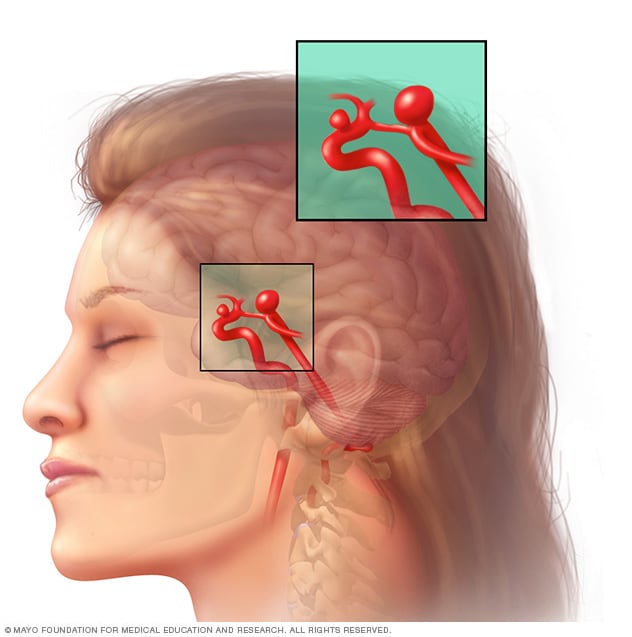
An aneurysm is a ballooning at a weak spot in an artery wall. An aneurysm's walls can be thin enough to rupture. The illustration shows an individual with an unruptured aneurysm. The inset shows what happens when the aneurysm ruptures.
A brain aneurysm (AN-yoo-riz-um) — also known as a cerebral aneurysm or intracranial aneurysm — is a bulge or ballooning in a blood vessel in the brain. An aneurysm often looks like a berry hanging on a stem.
Experts think brain aneurysms form and grow because blood flowing through the blood vessel puts pressure on a weak area of the vessel wall. This can increase the size of the brain aneurysm. If the brain aneurysm leaks or ruptures, it causes bleeding in the brain, known as a hemorrhagic stroke.
Most often, a ruptured brain aneurysm occurs in the space between the brain and the thin tissues covering the brain. This type of hemorrhagic stroke is called a subarachnoid hemorrhage.
Brain aneurysms are common. But most brain aneurysms aren't serious, especially if they're small. Most brain aneurysms don't rupture. They usually don't cause symptoms or cause health problems. In many cases, brain aneurysms are found during tests for other conditions.
However, a ruptured aneurysm quickly becomes life-threatening and requires medical treatment right away.
If a brain aneurysm hasn't ruptured, treatment may be appropriate in some cases. Treatment of an unruptured brain aneurysm may prevent a rupture in the future. Talk with your health care provider to make sure you understand the best options for your specific needs.
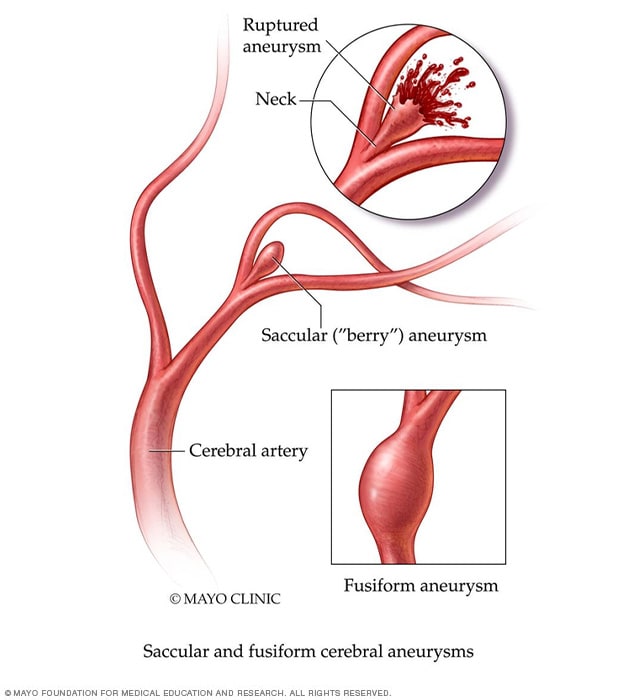
Saccular and fusiform cerebral aneurysms
A saccular aneurysm is known as a berry aneurysm. It's the most common type of brain aneurysm. It looks like a berry hanging from a vine. Another type of aneurysm is a fusiform aneurysm. It causes ballooning or bulging of the artery.
- Saccular aneurysm, also known as a berry aneurysm. This type of aneurysm looks like a berry hanging from a vine. It's a round, blood-filled sac that protrudes from the main artery or one of its branches. It usually forms on arteries at the base of the brain. A berry aneurysm is the most common type of aneurysm.
- Fusiform aneurysm. This type of aneurysm causes bulging on all sides of the artery.
- Mycotic aneurysm. This type of aneurysm is caused by an infection. When an infection affects the arteries in the brain, it can weaken the artery wall. This can cause an aneurysm to form.
Products & Services
- A Book: Mayo Clinic Family Health Book, 5th Edition
- Newsletter: Mayo Clinic Health Letter — Digital Edition
Most brain aneurysms that haven't ruptured don't cause symptoms. This is especially true if they're small. Brain aneurysms may be found during imaging tests that are done for other conditions.
However, a ruptured aneurysm is a very serious condition, typically causing a severe headache. And if an unruptured aneurysm presses against brain tissue or nerves, it may cause pain and other symptoms.
Ruptured aneurysm
A sudden, severe headache is the key symptom of a ruptured aneurysm. This headache is often described by people as the worst headache they've ever experienced.
In addition to a severe headache, symptoms of a ruptured aneurysm can include:
- Nausea and vomiting
- Blurred or double vision
- Sensitivity to light
- A drooping eyelid
- Loss of consciousness
'Leaking' aneurysm
In some cases, an aneurysm may leak a slight amount of blood. When this happens, a more severe rupture often follows. Leaks may happen days or weeks before a rupture.
Leaking brain aneurysm symptoms may include:
- A sudden, extremely severe headache that may last several days and up to two weeks.
Unruptured aneurysm
An unruptured brain aneurysm may not have any symptoms, especially if it's small. However, a larger unruptured aneurysm may press on brain tissues and nerves.
Symptoms of an unruptured brain aneurysm may include:
- Pain above and behind one eye.
- A dilated pupil.
- A change in vision or double vision.
- Numbness of one side of the face.
When to see a doctor
Seek immediate medical attention if you develop a:
- Sudden, extremely severe headache
If you're with someone who complains of a sudden, severe headache or who loses consciousness or has a seizure, call 911 or your local emergency number.
Mayo Clinic Minute: What is an aneurysm?
Vivien Williams : An aneurysm is an abnormal bulge or ballooning in the wall of a blood vessel.
Bernard Bendok, M.D., Neurosurgery, Mayo Clinic : A portion of these patients will go on to have a rupture. And the challenge with rupture is that it's unpredictable.
Vivien Williams : Dr. Bernard Bendok says a ruptured aneurysm is a medical emergency that can cause life-threatening bleeding in the brain.
Dr. Bendok : The typical presentation is somebody who has the worst headache of their life.
Vivien Williams : Fast treatment is essential. It includes open surgery or less-invasive options, such as sealing the ruptured artery from within the blood vessel with metal coils and/or stents.
Dr. Bendok says 1 to 2 percent of the population have aneurysms and only a small percentage of that group will experience a rupture. People who have a family history of aneurysms, have polycystic kidney disease, connective tissue disease, and people who smoke are at increased risk of rupture and should consider screening. If a rupture happens, fast treatment can save lives.
For the Mayo Clinic News Network, I'm Vivien Williams.
There is a problem with information submitted for this request. Review/update the information highlighted below and resubmit the form.
From Mayo Clinic to your inbox
Sign up for free and stay up to date on research advancements, health tips, current health topics, and expertise on managing health. Click here for an email preview.
Error Email field is required
Error Include a valid email address
To provide you with the most relevant and helpful information, and understand which information is beneficial, we may combine your email and website usage information with other information we have about you. If you are a Mayo Clinic patient, this could include protected health information. If we combine this information with your protected health information, we will treat all of that information as protected health information and will only use or disclose that information as set forth in our notice of privacy practices. You may opt-out of email communications at any time by clicking on the unsubscribe link in the e-mail.
Thank you for subscribing!
You'll soon start receiving the latest Mayo Clinic health information you requested in your inbox.
Sorry something went wrong with your subscription
Please, try again in a couple of minutes
Brain aneurysms are caused by thinning artery walls. Aneurysms often form at forks or branches in arteries because those areas of the vessels are weaker. Although aneurysms can appear anywhere in the brain, they're most common in arteries at the base of the brain.
Risk factors
Several factors can contribute to weakness in an artery wall. These factors may increase the risk of a brain aneurysm or aneurysm rupture.
Some of these risk factors develop over time. But some conditions present at birth can increase the risk of developing a brain aneurysm.
Risk factors include:
- Older age. Brain aneurysms can occur at any age. However, they're more common in adults between ages 30 and 60.
- Being female. Brain aneurysms are more common in women than in men.
- Cigarette smoking. Smoking is a risk factor for brain aneurysms to form and for brain aneurysms to rupture.
- High blood pressure. This condition can weaken arteries. Aneurysms are more likely to form and to rupture in weakened arteries.
- Drug use, particularly using cocaine. Drug use raises blood pressure. If illicit drugs are used intravenously, it can lead to an infection. An infection can cause a mycotic aneurysm.
- Heavy alcohol use. This also can increase blood pressure.
- Inherited connective tissue disorders, such as Ehlers-Danlos syndrome. These disorders weaken blood vessels.
- Polycystic kidney disease. This inherited disorder results in fluid-filled sacs in the kidneys. It also may increase blood pressure.
- A narrow aorta, known as coarctation of the aorta. The aorta is the large blood vessel that delivers oxygen-rich blood from the heart to the body.
- Brain arteriovenous malformation, known as AVM. In this condition, arteries and veins in the brain are tangled. This affects blood flow.
- A family history of brain aneurysm. Your risk is higher if you have family members who have had a brain aneurysm. This is particularly true if two or more first-degree relatives — such as a parent, brother, sister or child — has had a brain aneurysm. If you have a family history, you can ask your health care provider about getting screened for a brain aneurysm.
Some types of aneurysms may occur after a head injury or from certain blood infections.
Risk factors for a ruptured aneurysm
There are some factors that make it more likely an aneurysm will rupture. They include:
- Having a large aneurysm.
- Having aneurysms in certain locations.
- Smoking cigarettes.
- Having untreated high blood pressure.
Complications
When a brain aneurysm ruptures, the bleeding usually lasts only a few seconds. However, the blood can cause direct damage to surrounding cells and can kill brain cells. It also increases pressure inside the skull.
If the pressure becomes too high, it may disrupt the blood and oxygen supply to the brain. Loss of consciousness or even death may occur.
Complications that can develop after the rupture of an aneurysm include:
- Re-bleeding. An aneurysm that has ruptured or has leaked is at risk of bleeding again. Re-bleeding can cause further damage to brain cells.
- Narrowed blood vessels in the brain. After a brain aneurysm ruptures, blood vessels in the brain may contract and narrow. This is known as vasospasm. Vasospasm can cause an ischemic stroke, in which there's limited blood flow to brain cells. This may cause additional cell damage and loss.
- A buildup of fluid within the brain, known as hydrocephalus. Most often, a ruptured brain aneurysm occurs in the space between the brain and the thin tissues covering the brain. The blood can block the movement of fluid that surrounds the brain and spinal cord. As a result, an excess of fluid puts pressure on the brain and can damage tissues.
- Change in sodium level. Bleeding in the brain can disrupt the balance of sodium in the blood. This may occur from damage to the hypothalamus, an area near the base of the brain. A drop in blood sodium levels can lead to swelling of brain cells and permanent damage.
In many cases, brain aneurysms can't be prevented. But there are some changes you can make to lower your risk. They include quitting smoking if you smoke. Also work with your health care provider to lower your blood pressure if it's high. Don't drink large amounts of alcohol or use drugs such as cocaine.
Brain aneurysm care at Mayo Clinic
- AskMayoExpert. Unruptured intracranial aneurysm (adult). Mayo Clinic; 2021.
- Kim B-S. Unruptured intracranial aneurysm: Screening, prevalence and risk factors. Neurointervention. 2021; doi:10.5469/neuroint.2021.00451.
- Cerebral aneurysms fact sheet. National Institute of Neurological Disorders and Stroke. https://www.ninds.nih.gov/Disorders/Patient-Caregiver-Education/Fact-Sheets/Cerebral-Aneurysms-Fact-Sheet. Accessed Dec. 14, 2022.
- Cerebral aneurysm. American Association of Neurological Surgeons. http://www.aans.org/en/Patients/Neurosurgical-Conditions-and-Treatments/Cerebral-Aneurysm. Accessed Nov. 15, 2021.
- Jankovic J, et al., eds. Intracranial aneurysms and subarachnoid hemorrhage. In: Bradley and Daroff's Neurology in Clinical Practice. 8th ed. Elsevier; 2022. https://www.clinicalkey.com. Accessed Nov. 15, 2021.
- Singer RJ, et al. Unruptured intracranial aneurysms. https://www.uptodate.com/contents/search. Accessed Dec. 1, 2022.
- Srinivasan J, et al., eds. Subarachnoid hemorrhage. In: Netter's Neurology. 3rd ed. Elsevier; 2020. https://www.clinicalkey.com. Accessed Nov. 15, 2021.
- Simon RP, et al. Headache and facial pain. In: Clinical Neurology. 10th ed. McGraw Hill; 2018. https://accessmedicine.mhmedical.com. Accessed Dec. 15, 2022.
- Rinkel GJ. Management of patients with unruptured intracranial aneurysms. Current Opinion in Neurology. 2019; doi:10.1097/WCO.0000000000000642.
- Chancellor B, et al. Flow diversion for intracranial aneurysm treatment: Trials involving flow diverters and long-term outcomes. Neurosurgery. 2020; doi:10.1093/neuros/nyz345.
- Daou BJ, et al. Clinical and experimental aspects of aneurysmal subarachnoid hemorrhage. CNS Neuroscience and Therapeutics. 2019; doi:10.1111/cns.13222.
- Rinaldo L, et al. Natural history of untreated unruptured intracranial aneurysms in the elderly. Journal of Neurosurgical Sciences. 2020; doi:10.23736/S0390-5616.16.03891-1.
- Dai D, et al. Histopathological findings following pipeline embolization in a human cerebral aneurysm at the basilar tip. Interventional Neuroradiology. 2016; doi:10.1177/1591019915622165.
- Thielen E, et al. Concomitant coiling reduces metalloproteinase levels in flow diverter-treated aneurysms but anti-inflammatory treatment has no effect. Journal of Neurointerventional Surgery. 2017; doi:10.1136/neurintsurg-2015-012207.
- Kallmes DF, et al. Aneurysm study of pipeline in an observational registry (ASPIRe). Interventional Neurology. 2016; doi:10.1159/000446503.
- Brinjiki W, et al. Treatment of ruptured complex and large/giant ruptured cerebral aneurysms by acute coiling followed by staged flow diversion. Journal of Neurosurgery. 2016; doi:10.3171/2015.6.JNS151038.
- Becske T, et al. Pipeline for uncoilable or failed aneurysms: Results from a multicenter clinical trial. Radiology. 2013; doi:10.1148/radiol.13120099.
- Wiebers DO, et al. Unruptured intracranial aneurysms: Natural history, clinical outcome and risks of surgical and endovascular treatment. 2003; doi:10.1016/s0140-6736(03)13860-3.
- Kerezoudis P, et al. Predictors of 30-day perioperative morbidity and mortality of unruptured intracranial aneurysm surgery. Clinical Neurology and Neurosurgery. 2016; doi:10.1016/j.clineuro.2016.07.027.
- Zhao B, et al. Stent-assisted coiling versus coiling alone of poor-grade ruptured intracranial aneurysms: A multicenter study. Journal of Neurointerventional Surgery. 2017; doi:10.1136/neurintsurg-2016-012259.
- Sorenson T, et al. Trials and tribulations: An evidence-based approach to aneurysm treatment. Journal of Neurosurgical Sciences. 2016; https://pubmed.ncbi.nlm.nih.gov/27102908/. Accessed Dec. 3, 2021.
- Brown RD, et al. Screening for brain aneurysm in the Familial Intracranial Aneurysm study: Frequency and predictors of lesion detection. Journal of Neurosurgery. 2008; doi:10.3171/JNS/2008/108/6/1132.
- Brown RD (expert opinion). Mayo Clinic. Dec. 27, 2022.
- Thompson BG, et al. Guidelines for the management of patients with unruptured intracranial aneurysms: A guideline for healthcare professionals from the American Heart Association/American Stroke Association. Stroke. 2015; doi:10.1161/STR.0000000000000070.
- Quality check. The Joint Commission. https://www.qualitycheck.org/search/?keyword=mayo clinic. Accessed Nov. 21, 2021.
- Caffes N, et al. Unruptured cerebral aneurysms in elderly patients: Key challenges and management. Annals of medicine. 2021; doi:10.1080/07853890.2021.1990393.
- Korhonen A, et al. Subarachnoid hemorrhage during pregnancy and puerperium: A population-based study. Stroke. 2022; doi:10.1161/STROKEAHA.122.039235.
- What you should know about cerebral aneurysms. American Stroke Association. https://www.stroke.org/en/about-stroke/types-of-stroke/hemorrhagic-strokes-bleeds/what-you-should-know-about-cerebral-aneurysms. Accessed Dec. 20, 2022.
- Brain aneurysm basics. Brain Aneurysm Foundation. https://www.bafound.org/about-brain-aneurysms/brain-aneurysm-basics/. Accessed Dec. 22, 2022.
- Surgical clipping. Brain Aneurysm Foundation. https://www.bafound.org/treatment/surgical-clipping/. Accessed Jan. 20, 2023.
- Aneurysm clip
- Aneurysm Surgery
- Endovascular coiling
- New Way to Fix Aneurysms
Associated Procedures
- Lumbar puncture (spinal tap)
News from Mayo Clinic
- Mayo Clinic Minute: The difference in brain aneurysms March 18, 2024, 02:45 p.m. CDT
- Symptoms & causes
- Diagnosis & treatment
- Doctors & departments
- Care at Mayo Clinic
Mayo Clinic does not endorse companies or products. Advertising revenue supports our not-for-profit mission.
- Opportunities
Mayo Clinic Press
Check out these best-sellers and special offers on books and newsletters from Mayo Clinic Press .
- Mayo Clinic on Incontinence - Mayo Clinic Press Mayo Clinic on Incontinence
- The Essential Diabetes Book - Mayo Clinic Press The Essential Diabetes Book
- Mayo Clinic on Hearing and Balance - Mayo Clinic Press Mayo Clinic on Hearing and Balance
- FREE Mayo Clinic Diet Assessment - Mayo Clinic Press FREE Mayo Clinic Diet Assessment
- Mayo Clinic Health Letter - FREE book - Mayo Clinic Press Mayo Clinic Health Letter - FREE book
Your gift holds great power – donate today!
Make your tax-deductible gift and be a part of the cutting-edge research and care that's changing medicine.
Having a brain tumour diagnosis can impact a number of aspects of life, including travelling and going on holiday.
On this page you will find information about the support available to help you with travel options for day to day life and for hospital appointments, and information about travel insurance for when you go on holiday.
Travelling to appointments at the hospital

If you have had to surrender your driving licence because of your brain tumour diagnosis, this can often mean having to rely on somebody else taking you to the hospital or use public transport or taxis.
If these are not viable options, or the cost of travelling becomes unaffordable for you, there may be options available to you that can help with this.
Find out about NHS services to help with travelling to hospital
Hospital car parking charges
Hospital car parking policies can vary across the UK, so it is best to double check the policy of the hospital your will be visiting in advance.
In England , many hospitals offer free parking for people with cancer, or a discount. This isn’t always well advertised, and in some hospitals it may only be in a certain area, so try and find this information out before you travel.
In Scotland, hospital parking is free at all hospitals apart from Glasgow Royal Infirmary, the Royal Infirmary of Edinburgh and Ninewells Hospital in Dundee.
In Wales , hospital parking is free for everyone.
In Northern Ireland , hospital parking is free at all hospitals if you are having chemotherapy or radiotherapy.
Driving is a topic that is frequently spoken about among our community. When you are diagnosed with a brain tumour of any type, and you hold a valid driving licence, you must inform the DVLA of this. Once you let them know, they will then assess whether you have to surrender your driving licence. This decision is based on many different things, including the tumour type and your treatment pathway.
Our ‘Driving’ Know How goes into more detail about the process of contacting the DVLA and how long you may have to surrender your licence for.
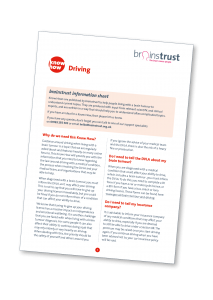
We know that the prospect of having to surrender your driving licence is a big challenge. It can mean a loss of independence, and the uncertainty of when you may be able to resume driving can cause feelings of anxiety. Below, you will find some information on some alternative travel options while you are not able to drive.
Download ‘Driving’ Know How
Travel assistance
If you are struggling with symptoms caused by a brain tumour, you may be entitled to help with some aspects of travel and getting around. In some cases, this may help to make day-to-day living a little easier.
While a brain tumour diagnosis doesn’t give you an automatic entitlement to any of the schemes outlined here, it is always worth looking into your eligibility according to your symptom burden. Most of the items listed below require you to prove eligibility for certain disability benefits.
You can link your Disabled Person’s Railcard to your Oyster card to get a third off Oyster pay-as-you-go single fares and daily caps on National Rail, London Underground and Docklands Light Railway services. Register at any London Underground, Overground or National Rail station ticket office that issues Oyster cards.
If you live in a London borough, you can apply for a Disabled Person’s Freedom Pass to gain free travel across London and free bus journeys nationally. Some boroughs offer passes at their discretion to people who do not meet the eligibility criteria.
Contact your local county council to apply for a free bus pass.
what3words is a free app that helps you to easily and accurately identify your location to the emergency services. This could potentially be very useful if you have seizures and going out alone is a worry for you. Search ‘what3words’ in your phone’s app store.
Displaying a Blue Badge allows you to park in disabled parking bays, often meaning that you can park closer to your destination.
You may be eligible for a Blue Badge if you cannot walk or have difficulty walking, and can evidence this in your application.
Additionally, the criteria have recently been expanded so that people with ‘invisible’ disabilities are now potentially eligible for the scheme. This means that in addition to physical disabilities, non-physical disabilities, including cognitive impairment, psychological effects, such as feeling overwhelmed by busy or loud environments, and cognitive fatigue, are now taken into account.
Check your eligibility and apply here https://www.gov.uk/apply-blue-badge (England, Wales & Scotland) or here https://www.nidirect.gov.uk/information-and-services/motoring-and-transport/blue-badge-scheme (Northern Ireland).
If treatment can give you an unpredictable stomach, or if you suffer from sickness, it can make the thought of going out anywhere new really challenging. A RADAR key offers you access to the 10,000 locked disabled toilets in the UK, making going out in public far less worrying.
More information about the RADAR National Key Scheme and accessible toilets is available here: https://www.which.co.uk/later-life-care/home-care/out-and-about/radar-keys-and-locked-toilets-apsxd1p6br8k?gclid=CjwKCAiAwrf-BRA9EiwAUWwKXoro-oWYtTw0O8IDbvFYqsWt973kql_cj5v-YWXtjf7HRSAIkYPsQhoC4EEQAvD_BwE

Travel insurance
When looking for some time away, travel insurance is something that we know can be a challenge when you have a brain tumour. The brain tumour hub has a list of travel insurance companies that will provide cover for people with pre-existing medical conditions.
Find travel insurance providers
Practical travel advice
If you are travelling abroad following a brain tumour diagnosis, you may find that you have more things to think about to help you prepare for your holiday.
Find practical tips when travelling abroad
Find out more about specialist travel insurance, as well as supported holiday resorts and respite breaks on the brain tumour hub .
Did this information make you feel more resourced, more confident or more in control?
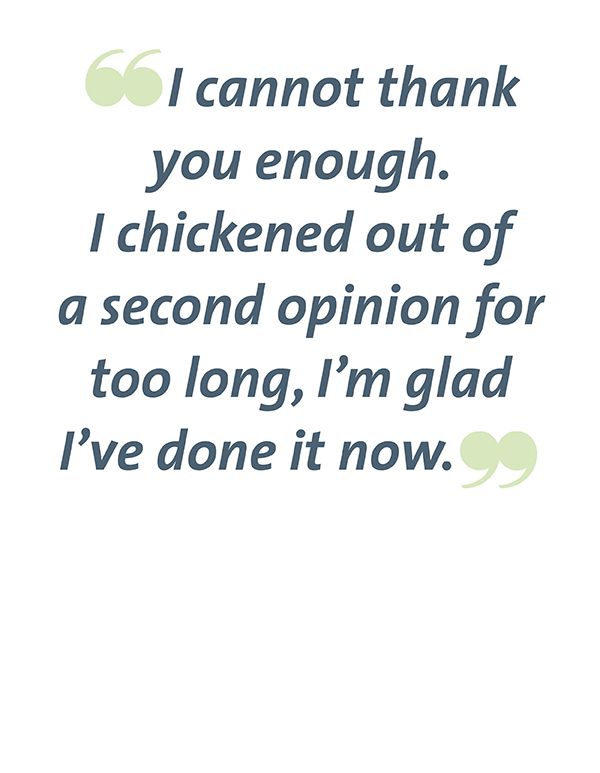
Last year your support helped:
2,339 people contacted our team of support specialists for help
825 new people accessed our support
404 people receive a Brain Box
We hosted 134 support events
110,928 people access our online information and support
3200 people in our online community to help each other to feel less alone.

- Vorasidenib now available to some Glioma patients 25th April 2024

Introduction
The Brain Tumour Data Dashboard lets you explore up -to-date, population level data about the brain tumours diagnosed in England between 2013 and 2015. Using the drop down menus on the left you can select different groups of patients to view in the charts below. In these charts the number of patients for every 100 diagnoses is displayed as images of people. Patients have been grouped by date of diagnosis, type of tumour, age, gender, and region in England.
For each group of patients you can explore the different routes to diagnosis, the proportion of those who received chemotherapy or radiotherapy, as well as the survival of the patients within each group. For more information about what these metrics mean please see the glossary.
- Select the year of diagnosis using the drop down menu.
- Tumour group
- Age at diagnosis
- Region of England
- Gender of patient
- To view a second chart to compare different groups of patients, click the ‘compare’ button.The second chart will appear below the first chart.
*Note that the tool is best used on a laptop or tablet rather than a mobile phone*
Unavailable data
Some of the data in these charts is not available.There are two main reasons for this:
- How the data has been grouped
If you cannot select a patient group from the drop down menus, the data is unavailable because of how the data has been organised.
Public Health England has grouped the data like a branching tree. The bottom of the tree contains all the patients with brain tumours, and then each branch divides the data by a certain characteristics, like age, or location of tumour. But the data is divided in an order, starting with location of the tumour (endocrine or brain), then by age, region, and gender. Age is at the start because it makes a bigger difference to survival rates and treatment rates than gender or region. Sometimes, after the data has been split by type of tumour and age, there is not enough data to be split again. This is because to protect patient confidentiality groups cannot contain less than 100 patients. Because some groups cannot be split further, you cannot create ‘totals’ for everyone by region or gender. For example, you cannot see results for all ages by region, or all brain tumours by gender. If these totals were calculated and released, it might be possible to identify patients, which is why Public Health England cannot release this data.
- Statistical reasons and data availability
If you can select a patient group from the chart menus, but the chart does not display, the data is unavailable for one of several reasons:
- Data is not yet available for the selected year from Public Health England.
- Data is not available because the data quality is too poor to release this statistic.
- Data is not available as the statistic is not appropriate for this group.
- Data is not available because the standard error of the estimate was greater than 20% and so the estimate has been supressed.
Up to date brain tumour data
Brain tumour data may influence the decisions you make about your care. data also helps you understand the bigger picture, or landscape, in which you find yourself..
Brain tumour data and statistics influence the focus, and work of organisations like brainstrust. The information helps us to understand the scale and impact of the problems we are setting out to solve.
This tool helps you understand the landscape in which you find yourself having been diagnosed with a brain tumour. This landscape can be particularly tricky to navigate as there are many different types of brain tumour, all of which have a different impact.
The information you see represents the most up-to-date, official, population level brain tumour data available for England. Over time we will be adding to the brain tumour data available and publishing reports, with recommendations, as a result of what we learn from this data.
The data behind this content has come from Public Health England’s National Cancer Registration and Analysis Service (NCRAS) and is a direct result of the ‘Get Data Out’ project.
This project provides anonymised population level brain tumour data for public use in the form of standard output tables, accessible here: http://cancerdata.nhs.uk/standardoutput
The number or rate (per head of population) of new cases of a disease diagnosed in a given population during a specified time period (usually a calendar year). The crude rate is the total number of cases divided by the mid-year population, usually expressed per 100,000 population.
Malignant tumours which grow by invasion into surrounding tissues and have the ability to metastasise to distant sites
The number or rate (per head of population) of deaths in a given population during a specified time period (usually a calendar year). The crude rate is the total number of deaths divided by the mid-year population, usually expressed per 100,000 population.
Non-malignant
Not cancerous . Non-malignant tumours may grow larger but do not spread to other parts of the body.
The length of time from the date of diagnosis for a disease, such as cancer, that patients diagnosed with the disease are still alive. In a clinical trial, measuring the survival is one way to see how well a new treatment works. Also called ‘overall survival’ or ‘OS’.
Routes to Diagnosis
Under the ‘Routes to Diagnosis’ tab in the Brain Tumour Data Dashboard, you can explore the ways patients have been diagnosed with brain tumours. There are many ways, or routes, for cancers to be diagnosed in the NHS. A ‘route to diagnosis’ is the series of events between a patient and the healthcare system that leads to a diagnosis of cancer. The routes include:
- Two Week Wait
Patients are urgently referred by their GP for suspected cancer via the Two Week Wait system and are seen by a specialist within 2 weeks where they are diagnosed.
- GP referral
Diagnosis via a GP referral includes routine and urgent referrals where the patient was not referred under the Two Week Wait system.
- Emergency Presentation
Cancers can be diagnosed via emergency situations such as via A&E, emergency GP referral, emergency transfer or emergency admission.
Outpatient cancer diagnoses include diagnoses via an elective route which started with an outpatient appointment that is either a self-referral or consultant to consultant referral. (It does not include those under the Two Week Wait referral system).
- Inpatient elective
Diagnosis via an inpatient elective route is where diagnosis occurs after the patient has been admitted into secondary care from a waiting list, or where the admission is booked or planned.
- Death Certificate Only
Diagnoses made by Death Certificate Only are made where there is no more information about the cancer diagnosis other than the cancer related death notifications. The date of diagnosis is the same as that of the date of death.
For some patients with a cancer diagnosis, there is no relevant data available to understand the route to diagnosis.
More information
If any of the statistical terms in this section of the brainstrust website are hard to understand, we recommend looking them up here:
Cancer Research UK’s Cancer Statistics Explained
http://www.cancerresearchuk.org/health-professional/cancer-statistics/cancer-stats-explained/statistics-terminology-explained#heading-Seven
If you are looking for help understanding terms relating specifically to brain tumours, and treatment, then the brainstrust glossary is available here:
https://www.brainstrust.org.uk/advice-glossary.php
Free Spirit
Medical Travel Insurance With No Age Limits
- Search for:

Brain and cerebral conditions travel insurance
Free Spirit was the first scheme of its type specifically created for those of any age with existing medical conditions. It is now one of the UK’s largest specialist travel insurance providers dedicated to those with health conditions including cerebral conditions relating to the brain.

Medical travel insurance from Free Spirit will give you peace of mind before travelling and whilst away on your trip. Get your travel insurance for cerebral conditions or call us on 02392 419 080 and talk with a friendly, fully-trained member of staff.
With our specialist travel insurance, you get a 32-day quote and once purchased a 14 day cancellation period. All policies come with an Insurance Policy which contains our medical emergency travel insurance numbers and our claims department.
We specialise in travel insurance for cerebral conditions including:
- Cerebral Palsy
- Brain aneurysm
- Encephalitis
- Hydrocephalus
- Cerebral haemorrhage
- Cerebral Arteriosclerosis
- Learning difficulties
- Stroke (CVA)
- Mini stroke (TIA)
- Progressive Supranuclear Palsy (PSP)
- Alzheimer’s
Also included are benefits for aftercare at home following hospitalisation, personal accident, personal liability, money & documents, missed/delayed departure, legal expenses, and winter sports option.
Please read the Insurance Policy for the full terms and conditions of this cerebral conditions travel insurance cover to make sure it’s suitable for your needs.
Why choose Free Spirit for your brain condition?
- Most medical conditions and disabilities covered
- No upper age limit on Single Trip and Annual Multi-trip
- Choice of two cover options – Super and Super Duper
- Single trips covered up to 115 days (45 days if aged 76 years or over)
- Annual Multi-trip provides unlimited number of trips – travel up to 32 days per trip (Super) and 45 days (Super Duper)
- Fully interactive website including online medical screening
- Journey disruption / Airspace closure cover
- Loss or damage to medical aids and prescribed medications
Cover your travelling companions on the same policy
Travelling companions can also be covered on Free Spirit, whether they have an existing medical condition or not. By including your travelling companions on the same Free Spirit policy, you will ensure the whole party is covered. For example, if you had to cancel your holiday due to your medical condition, your travelling companions on the same policy would also be covered which may not be the case if they had taken out a policy elsewhere.
How to get your Free Spirit travel insurance for cerebral conditions quote

Obtaining an instant quote and arranging cover with Free Spirit could not be easier.
Our fully interactive website includes online medical screening.
Travel, With Confidence
If you’re affected by a brain tumour The Brain Tumour Charity can help make your holiday plans a reality. Their community has a range of travel tips and advice to make your holiday happen when you’re ready. Also, on The Brain Tumour Charity website, our knowledgeable team have provided the answers to questions about travel insurance for children with brain tumours .
CUSTOMER REVIEWS
Read reviews
USEFUL INFORMATION
- Why Choose Us
- Insurance Policy
Testimonials
We were very happy with the service we received from Free Spirit, our medical expenses claim was settled hassle free.
I would recommend Free Spirit for their excellent value medical condition travel insurance.
My husband and I would like to add our appreciation of your very efficient and speedy responses to our communication with you. We are impressed with y…
The website is very easy to navigate and to enter details of previous medical conditions, and the premiums seem reasonable. The documents always arriv…
Obtaining quotes for travel insurance over the ‘phone is usually a long, drawn-out and miserable experience. What a difference with Free Spirit Travel…
Age U.K. recommended I contact free spirit when I required extra travel insurance to cover my medical condition. I found the questions asked for the c…
Having talked to several companies in this market, I found that Free Spirit was the only one with good medical knowledge. My consultant who was also a…
I wanted to commend you on a very pleasant and courteous customer service operator I spoke to regarding my travel insurance cover. Having numerous exi…
I have been most impressed with the service I have received. It is extraordinarily rare for companies to look for ways in which their customers can a…
Just to say how wonderful to speak to an operator who was efficient and very pleasant. It was a pleasure to do business with you today.
- Read Reviews
Ask The Team
You can read our Q&As or ask a question directly. Read Q&As

Stay in touch
Our newsletter gives you the freedom to travel with confidence. Tips, hints and guides – along with the occasional special offer – straight into your inbox. Sign up today!
- SUPPORT LINE 1800 857 221
- HELP & INFORMATION
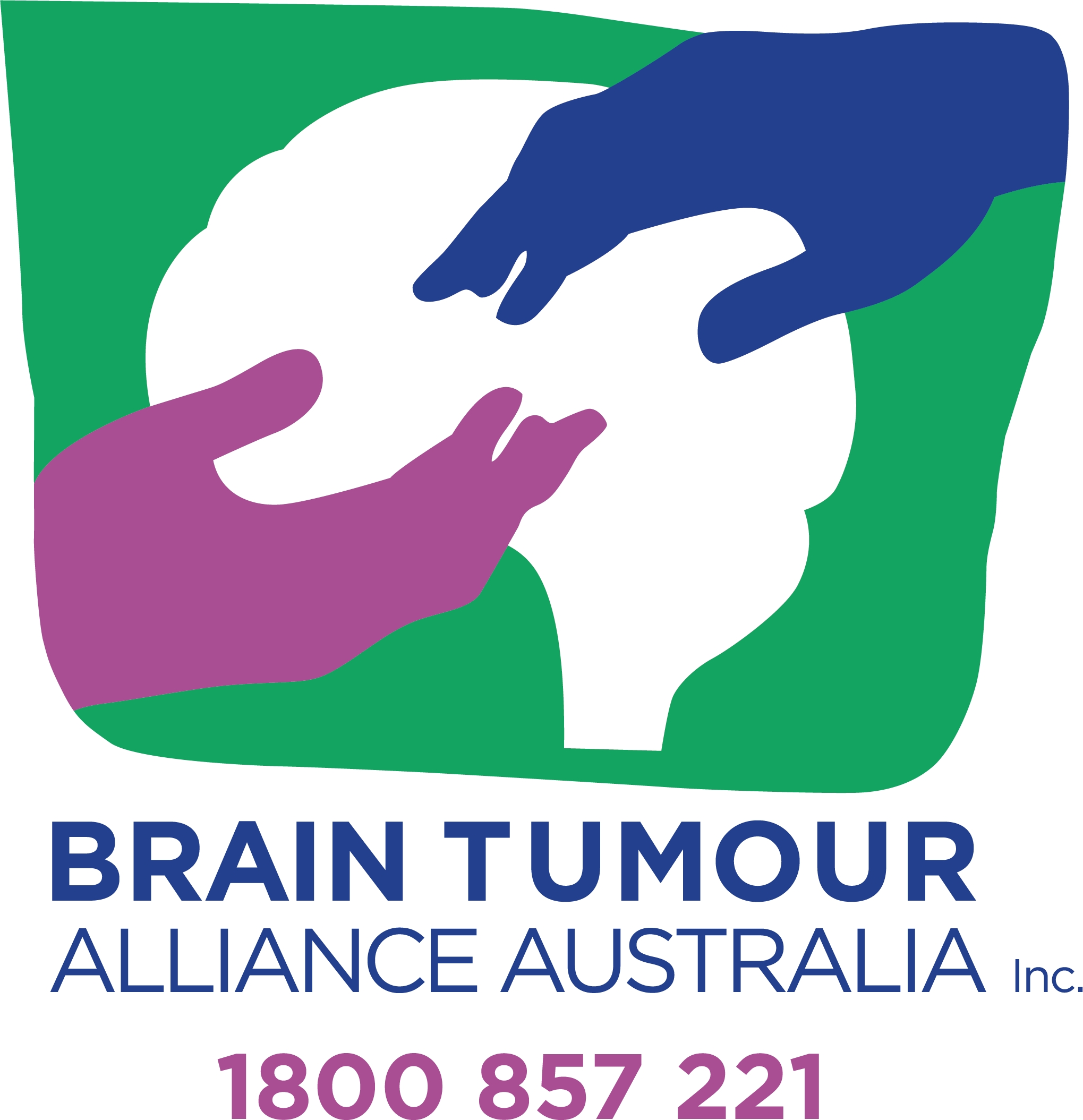
- Our Ambassadors
- Our Advocacy
- Our Projects
- Our Publications
- Privacy Policy
- Other Information
- About Brain Tumours
- Living with Brain Tumours
- Support Organisations
- Multi-cultural Support
- Clinical Trials
- Videoed Patient Forums & Related Information
- Latest News
- BTAA Magazine
- e-News - Popular Article Categories
- Welcome Pack
- Make a gift in your will
Travelling with a brain tumour - insurance and other issues
Thinking of travelling after a diagnosis?
It is important to talk to your treatment team prior to making any travel arrangements. Talk to your treating physician about the effects of travelling at high altitude, and ways to mitigate the risks and symptoms for brain tumour patients.
See the list of countries with a reciprocal health agreement with Australia here .
An insurance company that may quote online for those with brain tumours is All Clear Travel .
A/Prof Andrew Cole MBBS FAFRM, Chief Medical Officer, HammondCare, Conjoint Associate Professor, UNSW advised at the Sydney forum Patient Forum in May 2017 that the two aircraft types that have a higher cabin pressures (so less dehydration and headache) and those with a high percentage of composites in their construction are the Airbus A350 and the Boeing 787 (‘Dreamliner’). The Boeing 787 is flown by Jetstar, Air New Zealand, Air Canada, United Airlines, LatAm Chile etc over the Pacific, ANA to Japan, Hainan Air to China, and Qatar and Air India towards West Asia and Europe. Qantas is in the process of incorporating 787s into its fleet. The Airbus A350 is flown by Singapore Airlines, Qatar, and Cathay Pacific.
See Smart Traveller here.
A Definitive Guide for Travelling With Disabilities here is also a good source of information. This guide contains plenty of helpful tips such as:
- A comprehensive guide to help travellers with disabilities and mobility issues plan and prepare their holidays and journeys abroad.
- Practical tips and advice for the disabled traveller such as the best, most-accessible holidays and travel destinations, advice on bringing medications and medical equipment abroad, and a useful checklist of essential items to bring.
- Detailed information about how travelling with a disability affects insurance, what items and equipment may or may not be covered by insurance (e.g. wheelchairs, hearing aids), and other important information.
- Links to other useful disability resources and references that can help organise a safe and hassle-free trip.
Brain Tumour Alliance Australia (BTAA) is the national brain tumour patient and carer support organisation in Australia. It was established in late 2008 by a group of brain tumour patients, and current and former carers. While welcoming the advice and input of specialists, BTAA seeks to represent the brain tumour community from the viewpoint of the patient, their carers, and their families.

Improving life after brain injury Need to talk? 0808 800 2244
- What happens in a TBI?
- How severe is the brain injury?
- Mild head injury and concussion
- Brain aneurysm
- Brain haemorrhage
- Brain tumour
- Carbon monoxide poisoning
- Encephalitis
- Hydrocephalus
- Hypoxic and anoxic brain injury
- Behavioural effects of brain injury
- Cognitive effects of brain injury
- Glasgow Coma Scale
- Language impairment (aphasia)
- Speech difficulties
- Cognitive communication difficulties
- Emotional effects of brain injury
- Executive dysfunction
- Fatigue after brain injury
- Hormonal imbalances
- Memory problems
- Physical effects of brain injury
- Post-traumatic amnesia
- At the hospital after brain injury
- Early rehabilitation after brain injury
- Discharge from hospital after brain injury
- How to support a family dealing with brain injury
- I'm calling about Chris
- Rehabilitation
- The rehabilitation team
- Continuing care
- What is self-directed support?
- How to get self-directed support
- Making a support plan
- Managing your support
- Further help with self-directed support
- Safeguarding information
- Driving after brain injury
- Returning to work after brain injury
- Returning to education
- Holidays and travel
- Support through the cost-of-living crisis
- Navigating the Cost of Living
- Appealing a welfare benefits decision
- Attendance Allowance
- Carer's Allowance
- Employment and Support Allowance (ESA)
- Personal Independence Payment (PIP)
- Preparing for welfare benefits assessments
- Statutory Sick Pay
- Tips for completing benefits application forms
- Universal Credit
- How brain injury affects relationships
- Sex and sexuality
- How brain injury affects friendships
- Parenting and supporting children
- How brain injury affects partners
- Carer support groups
- Family reaction to a brain injury
- Supporting people to make decisions
- Information library
- "But you don't look disabled"
- Shana Lewis
- Robert Ashton
- Laura Bailey 2015
- Jane Allberry
- Ian Litchfield
- Debi Pullen
- David Thomas
- Alison Winterburn
- Mel Lightfoot
- Annette Henry
- Denise Johnson
- Codey Sharp
- Keith Emmanuel
- Lizzie Smart
- Gwen and Natalie Milham
- Terisha Burge
- Maria Knights
- Joanne Davis
- Sarah Whitchurch
- Amy Perring
- Jane Clarke
- Peter Holmes
- Luke Flavell
- Lindsay Lapham
- Nic O'Leary
- Angus Swanson
- Samuel Bishop
- Phil Broxton
- Nell Gregory
- Jamie Gailer
- Kate and John Bosley
- Gary Winters
- Kathryn Edgington
- Charlie and Jake Korving
- Bruno Muratori
- Kerry Jeffs
- Mike McCall
- James Piercy
- Andy Nicholson
- Warren McKinlay
- Lauren and Claire Cowlishaw
- Sarah McKinlay
- David Horner
- Arthur Moore
- Mike Palmer
- Sarah Tomlinson
- Paul Leyland
- Warwick Jarvis
- Jackie and John Mills
- Adrian Ellis
- Kieran Wallis
- Eleanor Simcox
- Jack Rutter
- Daniel Lingard
- Bernie Bambury
- Lorraine and Kevin Pratt
- Melanie Whittaker
- John Holbrook
- Jackie Alton
- Irvine Phair
- Rebecca Grant
- Rachel Atkinson
- Marco Gambi
- Brenda and Julian
- Callum Maclean
- A simple solution
- Lost in a crowd
- Caring for carers
- Dear my new brain
- Holiday from brain injury
- The new me and my Jumbledbrain blog
- The old me is not the new me
- I see Headway as the pit stop
- Riding my horse Johnny keeps me focused
- Headway is a haven
- Brain injury didn't steal my future
- Never give up
- Fiona Grant-MacDonald
- Kiran Higgins
- Jetting off alone
- Matt Brammeier
- Brain injury vs family
- The Face of Brain Injury With Dee Snider
- Mourning lost relationships
- A mother's perspective
- Pathological laughter - it's no joke
- Polly Williamson
- Writing a book after brain injury
- Michael Mabon
- A day in the life of a carer
- "Kerry the HATS nurse was my guardian angel"
- Don't struggle alone
- Harriet Barnsley
- I don't want anyone to feel as alone as I did
- Amanda Horton
- A helping hand
- Donnie McHarg
- Shona Green
- Jenny Joppa
- Philippa Taylor
- Debra Jones
- John Dougan
- "No memory of the day that changed my life"
- Jean Parker
- My experience of parenting after brain injury
- Sue McIntyre
- Daniel Mole
- Kerry Reynolds
- Keely McGhee
- Paula Stanford
- Relationships after brain injury – Imogen’s story
- Jules Pring
- Dr Amy Izycky's Headway Exhibition
- Nicola Brown
- Rod Maxwell
- Doing it the Head way
- Carer vacancy. Unpaid. Full time. No experience required.
- Joe Sandford
- My Brain Injury ID Card
- Matthew Nichols
- Heather Pollard
- Noelle Robinson
- Giles Hudson
- Q&A - ‘Be in the moment. This is all you have.’
- Q&A – “I would be the Happiness Fairy, I’ve sprinkled Happy Dust on you, now smile.”
- Nature's Way: Gardening after brain injury
- The debilitating impact of social isolation
- Joanne Wood - Who
- David Greer
- Lynne O'Grady
- Clair Bennett
- Danielle's story - returning home
- Anne Johnston
- Q&A: Cat
- How I overcame panic attacks
- Q&A with Zalehka Price-Davies
- Philippa-Anne Dewhirst
- After my brain injury I kept questioning, 'what if I have lost my ability to be creative?'
- Chris Bryant
- Busting the myths around brain injury and sex
- I swear, he knew he was helping me
- Hannah Brandon
- Keith Poultney
- Joanna Darmody
- Terry Slade
- Tamara Bond
- Kavita Basi
- Learning to live again
- David Wheeler
- Jessica Stevens
- Andrew Plowright
- Steve Borland
- Financial fraud: a risk you can't afford to ignore
- Dating after brain injury
- Max Muteliso
- Q&A: Roger Merriman
- Parenting with a brain injury
- Kieran Broadfield
- Louise Lane
- Adam Nicke - Q&A
- Hitting the High Street at Headway's Hinckley shop
- Hitting the high street at headway hinckley
- London Marathon Runners
- Rebecca Hutchings
- Joanne Wood
- Paws for Thought
- Jake Elliott
- Growing Together with Headway Cambridgeshire
- Lauren Walkington Q&A
- Daniel Parslow
- Alex Murphy
- Matt Masson
- Alphabet Brains
- Pete Bourne
- David Yabbacome
- Julie Sadler
- Lottie Butler
- Candice Ridley
- Belinda Medlock
- Unravelling the mystery of fatigue
- Lara Newson: Head Smash
- Robert Courtnell
- Hipatia Preis
- Stewart Gray
- Mary's Story
- Hannah O'Dowd
- Victoria Wicks
- Carol Smith
- ABI Week across the UK
- Rebecca Ivatts
- Nicola Evans
- 'Writing gives me meaning'
- The perils of gambling after brain injury
- Fit for purpose: The benefits of being active after brain injury
- Festival fun after brain injury
- 6 strategies for getting back to work after brain injury
- Matt Rhodes
- Stop the bus! A guide to public transport
- Brain injury: To tell or not to tell?
- 5 ways to cope with taste and smell problems after brain injury
- The uneasy relationship between alcohol and brain injury
- 9 ways to help with planning problems after brain injury
- 7 top tips for managing visual problems after brain injury
- 10 ways to cope with depression after brain injury
- Supporting children: visiting a parent in hospital
- Supporting children after a parent's brain injury: when a parent comes home
- Donna Siggers
- How to manage memory problems after brain injury
- Hot weather after brain injury: tips for keeping cool
- Stefan Leader
- A picture speaks a thousand words
- Andrew Purnell
- Ruth Berkoff
- David Aston
- Katherine McKinstry
- Chloé Briffa
- Socialising after brain injury
- Shane Booth
- Theme parks: accessibility after brain injury
- William Windle
- Rebecca Jones
- Sarah Scott
- Pregnancy after brain injury
- Music after brain injury
- Emma Martins
- Dancing after brain injury
- Scottie Elliott
- Let's talk tech
- Lorna Lancaster
- Carol Evans
- John Wrathall
- Fiona Baker-Holden
- Ryan Goodenough
- Christmas after brain injury
- Cecilia Danielsson
- Saturday Night Fever
- Anthony Hewson
- Q&A: Julian Earl
- Fireworks after brain injury
- Coping with Christmas in hospital
- Eleanor Brander
- Beccy Young
- Veronica Woods
- 10 things not to say to someone with a brain injury
- Tracey Newman
- Lauren Gilligan
- Louis McGuire
- Fighting the bear
- David Macdonald
- Yvette Lumley
- Christina Sweeney
- Charlotte Warhurst
- Cindy Hollingsworth
- Spencer Senior
- Q&A: Steven Kelly
- I am a firm believer in not just speaking of the change, but actively searching to be part of it.
- Carwyn Wooldridge
- Charli Skinner
- Lucy Rogoff
- Bryony Wilshaw
- David Wozny
- Sarah Allwood
- "We're all going on an assisted holiday"
- Anne's top tips for self-isolation
- Sammy's top tips for managing mental health problems during self-isolation
- Kavita's tips for self-isolation
- Belinda’s story: Isolation after brain injury
- Mikey Smithson
- Let’s talk continence problems after brain injury
- Mark Kennedy
- Gary Younge
- Mindfulness and me
- Life in lockdown: Alison's story
- John Beaumont
- Catherine Erdal
- Lyndsey Anderson
- Rock painting by Deborah Johnston
- Q&A: Hollie-Blue Huntsman
- Donna Davies
- Caroline Spiers
- More than my brain injury: Danielle Grant
- Brain Injury Sunblock and the Infernal Birdsong
- Sandra Liddell
- Brain Injury And Covid: Jane Hallard
- Brain Injury And Covid: Jean Parker
- A day in the life of a Headway helpline consultant
- Brain injury and Covid: Tom Harris
- Brain Injury And Covid: Michael Perry
- Rebekah Nesbitt
- The Headway helpline: You're not alone
- The price of a punch
- David Baker
- Donna Harris
- 7 signs of executive dysfunction after brain injury
- My poetry: Joseph McAloon
- Angela Lewis
- Daniel Sutherland
- Andrew Brown
- Sarah McGrath
- Dan Goldstraw
- In her own words: Emma Davey
- My poetry: John Marshall
- Disinfectant by Sarah-Louise Lennon
- Karen Whitehead
- In his own words: Max Bongard
- Karl Hargreaves
- Samuel Moore
- Animation: Memory loss after brain injury
- How to cope with memory problems after brain injury
- Q&A: George Mitchell
- Michelle Hay
- Q&A: Alan Heal
- Lucy Hunter
- Cara's story
- Q&A: Rosemary Shaw
- Mental health and brain injury
- Emma Chivers
- Q&A: Terence Berritt
- Q&A: Emma Linnell
- Tai Chi After Brain Injury with Dr Giles Yeates
- In her own words: Emma Lindsay
- Phillip Cragg
- Paintings by Hannah Jenkins
- Q&A: Alison Rockall
- Imogen Cauthery
- Alex Danson-Bennett MBE
- My poetry: Helen Wilson
- Haydn Garrod
- Podcast: Life with no filter
- Overcoming challenges after brain injury
- Creative Expression: Mark and Jules Kennedy
- Eleanor Furneaux
- Creative Expression: Lucy Pugh
- Claire Bullimore
- My artwork: Sandra E Ball
- Blue Mundane Monday Mix by Glen Stephenson
- Nicola Cross
- Survival is a Team Dream by Philippa Bateman
- Brain Attack Music by Andy Dovey
- Top tips for coping with parenting through lockdown
- Pauline O'Connor
- Duncan Boak
- Gill and Terry Oliver
- Jelly Brain documentary: A gift to mum
- In her own words: Jodie Bacon
- Monica Petrosino
- Josh Rawson
- What triggers anger after brain injury?
- Gerald Heffernan
- Back behind the wheel: Paula Barlow
- Back behind the wheel: Driving FAQs
- Elizabeth Wilkins
- My poetry: Sam Norris
- Alex Richardson
- Emerging from lockdown: Tips for brain injury survivors
- My podcast by Nikki Webber MBE
- Isolation and loneliness: Life with no filter podcast
- A life of lockdown? Belinda's story
- A life of lockdown? Derek's story
- A life of lockdown? Melanie's story
- A life of lockdown? Elizabeth's story
- Mindfulness Training after Brain Injury with Dr Niels Detert
- Fresh Start by the Headway Glasgow Writing Group
- 'I've Made It!' by Becki York
- Lucy O'Donovan
- Top tips for coping with headaches
- Helena Breslin
- Sue Williams
- Reflections of Chair-Man Eason
- Ceara's story
- Tracy Dickson
- Julie Mueller
- Thomas Leeds
- Headaches: The whats, whys and hows
- My photography: Rob Dinwoodie
- Nick Henderson
- Lenka Brunclikova
- Emma Doherty
- Planting a seed of thought - Natalie Parr
- 'My Broken Brain' by Sam Hedges
- Sally Smith
- Catherine Jessop - Pulling Through
- My poetry: Sam Moore
- Exploring your dreams
- Sweet dreams? Getting a good night's sleep after brain injury
- Mindfulness after brain injury
- Amy Streather
- Eleanor May Blackburn
- Paul Wilkins
- Barry Cusack: My body and mind
- Our relationship reality: Love after brain injury
- Love after brain injury: Thalia and Matt
- Tisha's story
- Executive dysfunction explained
- Let’s talk about sex...
- When Catwalks are Barbed
- Hope by Angela Webb
- Headway gets creative!
- From a child's mind to centre stage
- Bernadette Bendall
- Zoe Rainaki
- What did you not see? By Stef Harvey
- A Windy Moment by Nick Fletcher
- Helen and Liz
- The Sound of Recovery
- A family united to support life after brain injury
- See the Hidden Me: Iona's story
- See the Hidden Me: Annette's story
- See the Hidden Me: John's story
- See the Hidden Me: Christine's story
- The Brain Injury Cookbook
- Raj Gataora
- Marco Gambi: A passion for food
- Celebrating 10,000 Brain Injury ID Cards
- 'Rehabilitation rather than incarceration'
- Theresa Malcom
- Tim Richens
- Visual problems: A closer look
- Dusty Zeisberger – 24-hour treadmill challenge
- A conversation with... Ian Scott-Logan
- Ways to help cope at Christmas: tips for survivors, families, friends, and carers
- World’s first ABI Games a huge success!
- Steven Lomas
- Memory systems
- Stevie Ward
- Five Years On by Clare Jones
- The Penny Drops
- Stephen Evans
- Don’t get bitten by the sharks!
- Jonathan Hiron
- Finding your superpower...
- Post-traumatic growth after brain injury
- Nick Blackwell
- Heads, Hats and Healing: Making and Creating Silver Linings
- Nigel and Paula's story
- Joseph's story
- John's story
- How to manage isolation after brain injury
- Managing anxiety after brain injury
- Simon and Marc's story
- Sandi's story
- Relearning life skills
- "A charity of love"
- Dawn, Headway volunteer
- Pat Griffiths, Chair of Trustees for Headway Meirionnydd
- Creative writing sessions: Laura Bailey
- Creative writing sessions: Sam Moore
- Creative writing sessions: Helen Davies
- Nicola Bird Blunt
- In her own words: Lynn Boyle
- My brother was killed by one punch: Aaron Matcham
- Completing my life-long dream of running the Brighton Marathon: Adam Clarke
- Drained by fatigue? Try these 8 ways to cope after brain injury
- 8 ways to manage a lack of insight after brain injury
- How to help someone with a brain injury: Top tips for friends and family
- Balance problems after brain injury
- Safe travels! Your holiday tips
- Early warning signs of fatigue
- Keeping your relationship healthy after brain injury
- Carers: Try these 4 ways to care for yourself
- 7 tips for volunteering after brain injury
- 10 top tips for coping with stress after brain injury
- Top 10 tips for staying safe online
- In memory of much-loved partner and dad
- 10 ways to manage anger: tips for brain injury survivors
- Managing impulsivity and disinhibition following brain injury
- Friends: 5 ways to support someone with a brain injury
- Diet after brain injury: Healthy body, healthy mind?
- Top tips for a good night's sleep
- An awfully big row: Giles Johnson
- Jurate Ardour
- Dean Osborne
- Iain Millar: Rising from Adversity to Find Purpose on the Golf Course
- Finding Hope on the Fairway, Anthony Roberts' Journey of Resilience and Inspiration
- James Heather
- Andy Southey
- From one punch victim to Headway Hero: A Half Marathon triumph
- Mark Winterbourne
- World Mental Health Day
- Thanking Our Fundraiser: Sahara Trek Triumphm
- Sisters’ challenge inspired by ‘hero’ sibling’s brain injury
- The devastating consequences of one punch
- Get to know – Jen, Director of Fundraising
- Putting the ‘I’ in identity after brain injury
- Coping with winter blues
- Making returning to work, work for you
- Alan's story
- Get to know – Sarah, Trust and Foundations Manager
- Give up, or focus tremendously on rehabilitation
- What really counts?
- Laura Macfarlane
- The role art can play in positive change
- World Poetry Day
- Poem: TBI Survivor
- Adapting to life after brain injury: Returning to work
- Meet the volunteer - Roger Beattie
- We are family! Siblings run for Headway in support of their mum
- The impact of brain injury on a family
- A craniotomy – ‘the last resort’
- Registration process
- Who can apply?
- What constitutes a Unit?
- Why is accreditation important?
- Summary of standards to be assessed
- Criminal Justice System Professionals
- Headway Annual Awards
- Clinical guidelines
- Supporting carers
- Resources for GPs
- Headway Head Injury Solicitors Directory
- Headway services
- Life after acquired brain injury: Coping with anxiety and depression
- Diet and nutrition after brain injury
- Smell and taste disorders after brain injury
- Nature’s benefit after brain injury
- Managing sleep and fatigue after brain injury
- Understanding MY brain injury
- Navigating life after brain injury
- An introduction to brain injury
- Understanding brain injury
- Effective communication strategies
- Understanding behaviours that challenge
- Goals training
- Brain Injury Solicitors training
- Understanding brain injury training for criminal justice professionals
- Intimate partner violence (IPV) and brain injury
- Headway group training sessions
- About the brain
- Choosing the right solicitor
- The claim process
- Meeting your solicitor
- Questions to ask your solicitor
- Headway personal injury lawyers code of conduct
- Complaints and disclaimer
- Find a solicitor
- Find an approved care provider
- Common brain injury terms
- Useful organisations
- Buy Headway publications

Stories of life after brain injury
- Channel Islands
- Headway Cambridge and Peterborough - Chesterton
- Headway Cambridge and Peterborough - Peterborough
- East Midlands
- Northern Ireland
- Isle of Wight
- Headway Birmingham and Solihull - Headway House
- Headway Birmingham and Solihull - Sutton House
- National solicitors
- Approved care providers
- Charity shops
- Brain injury and the criminal justice system
- Headway Emergency Fund
- Headway’s Justice Programme
- Online communities
- Keeping family and friends updated
- I recently sustained a brain injury
- I'm living with a brain injury
- Someone I know has a brain injury

Get support near you

Legal advice

Brain Injury Identity Card
- Latest news and updates
- Real life stories
- Share your story
- Headway News magazine
- Media centre
- A life re-written
- Brain Drain: Wake up to fatigue!
- Budget for brain injury
- Concussion guides
- Cycle safety
- Every 90 seconds
- Memory Loss: A campaign to remember
- See the hidden me
- You, me, and brain injury
- Creative expression
- Right First Time
- Second Hand September
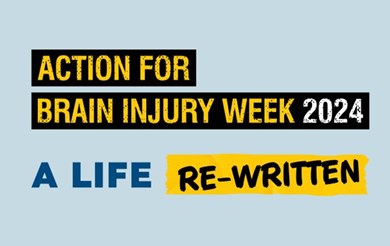
- ABI Week: A life re-written

Headway News spring 2024
- Hats for Headway Day
- Headway Charity Golf Day
- Mince Pie Morning
- Friends of Headway
- Superhero Series
- Ultra Challenge Series
- Bournemouth Marathon Festival (5K, 10K, Half Marathon)
- Edinburgh 5K and 10K (part of the Edinburgh Marathon Series)
- Great Bristol Run 10K
- Great Bristol Run Half Marathon
- Great Manchester Run 10K
- Great Manchester Run Half Marathon
- Great North Run Half Marathon
- Great North Run 10K
- Great North Swim Weekend
- Great South Run
- Hackney Half Marathon
- Rob Burrow Leeds Marathon
- Robin Hood Half Marathon
- TCS London Marathon
- Great Scottish Run Half Marathon
- Great Scottish Run 10K
- Three Peaks Challenge
- Yorkshire Three Peaks Challenge
- Payroll Giving
- Organising your own event?
- Download your fundraising pack
- Easy ways to support us
- Head Injury Solicitors Directory
- Fund the Headway Helpline
- Corporate events
- Charity Partnerships
- Corporate Membership
- Trusts and foundations
- Our fundraising principles
- A gift in your will
- A gift in memory
- Celebrations
- Donate your unwanted items
- Local groups and branches
- Headway UK offices
- Featured stories
- Video and audio
- The written word
- Living with brain injury
- Headway Heroes
- Brain injury and me

- Headway training courses
- 2024 Best Relaxation Activities Weekend (BRAW)
- Head First Conference
- Irwin Mitchell - Health and Safety Conference
- Headway webinar series
- Hard Hat Awareness Week
- BABICM Annual conference - 2 Day
- East of England stroke forum conference
- Headway Lincolnshire's Annual Brain Injury Conference
- Carers Week: Putting Carers on the Map
- Volunteers' Week
- Headway Suffolk Neuro Conference
- Aims and objectives
- The history of Headway
- Headway supporters
- Parliamentary Champions
- Headway UK staff
- Headway trustees
- Publications
- Merchandise

Help us continue our work
For individuals, for professionals, further information, related resources.
Holiday organisers are increasingly considering the needs and wants of disabled people. There are, however, steps you can take to help ensure your holiday goes as smoothly as possible.
Before you go
- It is important to check that the holiday insurance policy covers any aids or equipment that you might need to take with you.
- Do ensure that you have a good supply of medication and necessary aids and equipment to last you for your stay. Medicines and tablets should be clearly labelled.
- If in doubt, check with your doctor that it is safe for you to fly.
- You should check any special health requirements for the countries you are visiting. Vaccination may be required, or advisable, against certain diseases.
- Do ensure that you contact those concerned (airline, railway, accommodation) well in advance if you have any special requirements. Don’t assume that staff members will know and understand your needs, make sure you tell them!
- Allow enough time for boarding - you may not follow the same procedure as everyone else.
- Consider the security of your home whilst you are away. You may wish to make arrangements for somebody you trust to visit your home whilst you are away for security reasons.
Funding for holidays
Any disabled person or family with a disabled member has the right to approach their local Social Services department concerning assistance in making holiday arrangements. Unfortunately, in practice, holidays are often a low priority for Social Services due to budget restrictions – but it is always worth asking especially when considering your needs as part of a personal budget assessment.
Possible sources of help include organisations set up to look after members of a particular group and their family. Professional bodies often have funding available for members and their dependents. Trade Unions have similar schemes. Local charities may be able to help. The local public reference library and local CVS (Council for Voluntary Service) are good sources of information on the charities in your area.
There are some trusts that consider applications for financial assistance towards the cost of a holiday For more information on possible sources of funding contact our freephone helpline.
Travel insurance
Most insurance companies charge a large premium or offer lower levels of cover for people with pre-existing medical conditions, including brain injury.
We always suggest getting a few quotes before buying travel insurance, as prices and cover can vary depending on your circumstances. You can find a list of more providers on our Holidays and Travel after brain injury factsheet (PDF)
If you are caring for someone with a brain injury or have a relative being treated in hospital, this section will help you to meet the challenges ahead and find the support you need.
In your area
Find brain injury support in your area by searching our directory of local Headway groups and branches, specialist solicitors, approved care providers and charity shops.
Share this page
Friends of Headway Individual membership Join/Renew
Contact Us t: 0115 924 0800 e: [email protected]
Help us improve life after brain injury.
Improving life after brain injury 0808 800 2244.
Call our free helpline 9am - 5pm, Monday to Friday. Or email [email protected]
Join our online Community
- Corporate policies
- Terms & Conditions
- Accessibility
- Resource centre
- Find a Headway
- Complaints and compliments
- Join our mailing list
Headway - the brain injury association is registered with the Charity Commission for England and Wales (Charity no. 1025852) and the Office of the Scottish Regulator (Charity no. SC 039992). Headway is a company limited by guarantee, registered in England no. 2346893.
© Copyright Headway 2024 - Site designed and developed by MEDIAmaker
Our sponsors:
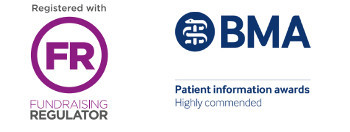
Masks Strongly Recommended but Not Required in Maryland, Starting Immediately
Due to the downward trend in respiratory viruses in Maryland, masking is no longer required but remains strongly recommended in Johns Hopkins Medicine clinical locations in Maryland. Read more .
- Vaccines
- Masking Guidelines
- Visitor Guidelines
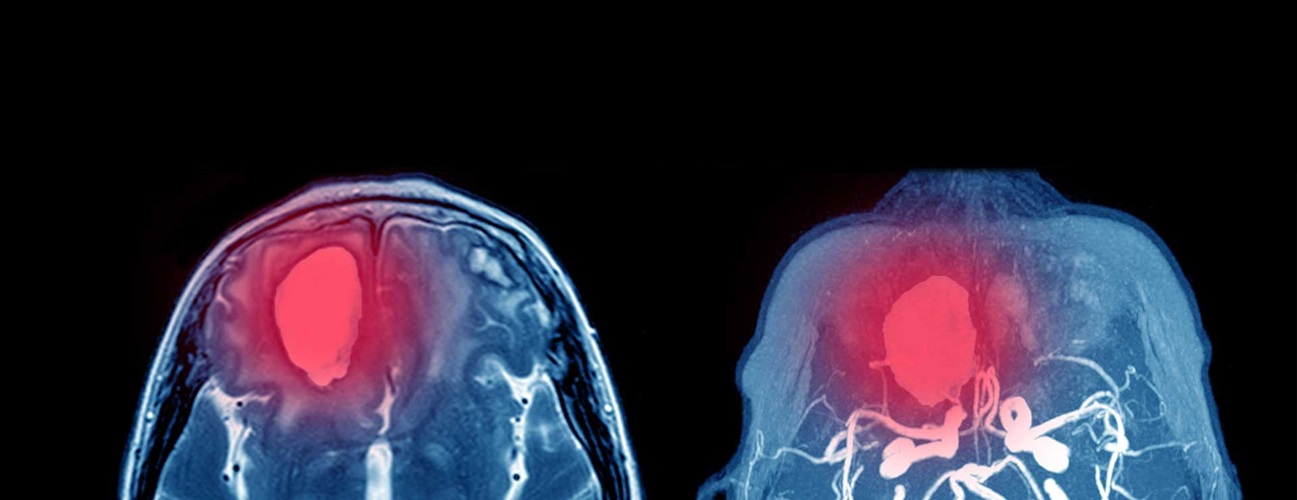
Unruptured Brain Aneurysms
Featured Expert:

Judy Huang, M.D.
When a blood vessel swells or bulges in one spot, it's called an aneurysm . If you've been diagnosed with an unruptured brain aneurysm, your doctor will consider many factors before deciding whether you need treatment — and if so, what that treatment should be.
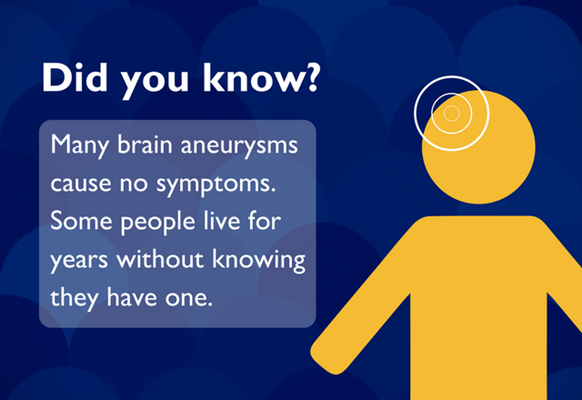
I was diagnosed with an unruptured brain aneurysm. What do I do next?
First, you need to get more information. You should seek out care at a specialized center for brain aneurysm treatment.
It's important to choose a medical team that knows brain aneurysms. The more surgeries a center performs on brain aneurysms, the better it is at ensuring safe and effective results.
At Johns Hopkins, our expert neurosurgery team uses the most advanced techniques to perform more than 4,000 surgeries each year — more than 300 of those are for brain aneurysms alone.
Can people live a long time with a brain aneurysm?
Absolutely. Many aneurysms cause no symptoms at all. Some people live for years without knowing they have a brain aneurysm.
Will I need surgery to treat an unruptured brain aneurysm?
For an unruptured brain aneurysm, your doctor will decide whether it's better to treat the aneurysm now or monitor you carefully (called watchful waiting).
Certain aneurysms are more likely to bleed, or rupture. A rupture is a critical and potentially life-threatening situation. Your care team will determine how likely the aneurysm is to rupture so it can plan your treatment.
If treatment is necessary, your doctor will consider which treatment is best for your circumstances. The two most effective treatments for brain aneurysms today are:
- Microsurgical clipping : Neurosurgeons make a small opening in the skull and place a titanium clip to prevent blood from flowing into an aneurysm.
- Endovascular coiling : In this newer approach, neurosurgeons place a stent, or tube, or other devices, such as coils, inside a blood vessel or aneurysm to divert blood flow away from an aneurysm.
What does it mean when an aneurysm bleeds?
Think of an aneurysm as a balloon that forms in the wall of a blood vessel. If you keep blowing air into a balloon, the walls of the balloon stretch until it eventually pops. Aneurysms do the same thing.
When an aneurysm has bled, that means the wall of the aneurysm stretched so much that it broke. The blood inside the blood vessels then escapes from the aneurysm and spreads out over the brain's surface.
The bleeding, called subarachnoid hemorrhage , can cause serious damage. That's why doctors do everything possible when treating a brain aneurysm to prevent it from rupturing.
How will I know if a brain aneurysm has ruptured?
When an aneurysm ruptures, it causes a severe headache like no other you've ever felt.
If a brain aneurysm has ruptured, time is of the essence. Rapid medical care is critical to getting the necessary treatment for a successful recovery. With immediate, expert care, a full recovery is often possible.
Find a Doctor
Specializing In:
- Cerebral vascular malformations
- Cerebral Aneurysm
- Aneurysm Repair
- Aneurysmal Subarachnoid Hemorrhage (ASH)
At Another Johns Hopkins Member Hospital:
- Howard County Medical Center
- Sibley Memorial Hospital
- Suburban Hospital
Find a Treatment Center
- Aneurysm Center
- Neurology and Neurosurgery
Find Additional Treatment Centers at:
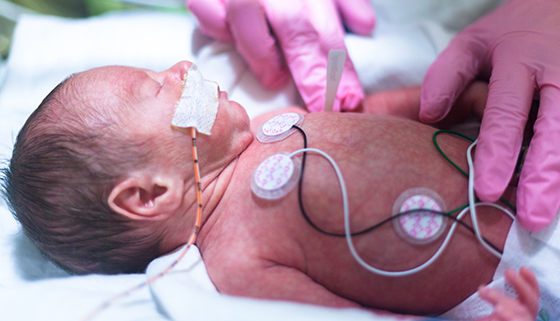
Request an Appointment
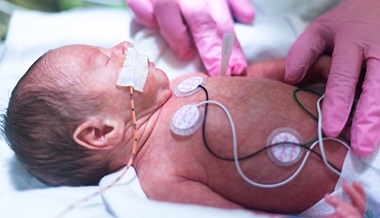
Intraventricular Hemorrhage
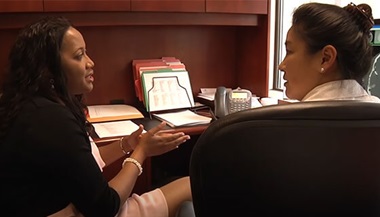
Ruptured Brain Aneurysm: Dr. Mezu's Story

4 Aneurysm Traits that Predict Rupture
Related Topics
Pre-Existing Medical Conditions
Travel insurance and medical conditions.
Choosing the right travel insurance is difficult enough. Choosing the right travel insurance when you have an existing medical condition is even more difficult.
To help make life a little easier the team at insure4travel has developed a fully integrated, seamless and simple online solution.
Once you have obtained a quote using our fast quote form, the system will ask a few simple questions to help determine whether we need more details about your health. If we do, then you just type in your condition and you will be asked some easy to understand questions about your condition – you can declare an unlimited number of conditions.
Each of your responses is entered into a complex algorithm which looks at a combination of factors including your destination, (the cost of medical treatment in some countries is much higher than others), and the potential cost of a claim (based on years of amalgamated travel insurance claims data).
In less than a second, you will have an on-screen confirmation advising whether we can cover your conditions – in most cases there is no extra cost. If there is a cost the website will show the cost clearly.
If you decide to take out a policy, your certificate will state your conditions and will confirm that there is cover for claims related to them.
On rare occasions, the system will determine that we cannot provide any cover.
The following is just a sample of some the conditions that we have screened:
- Abdominal aortic aneurysm
- Abnormal heart rhythm
- Addison’s disease
- Allergic reaction
- Alzheimer’s
- Amyloidosis
- Anaphylaxis
- Angina continued
- Angioplasty
- Angioplasty continued
- Ankylosing spondylitis
- Anti cardiolipin syndrome
- Aortic aneurysm
- Aortic stenosis
- Aortic valve replacement
- Arrhythmia treated with ablation
- Arthroscopy
- Asthma diagnosed over age 50
- Atherosclerosis
- Atonic bladder
- Atrial fibrillation
- Atrial flutter
- Back and/or neck problems
- Basal cell carcinoma
- Bell’s palsy
- Benign arrhythmia
- Benign brain tumour
- Benign ectopics
- Benign paroxysmal positional vertigo
- Benign prostatic hyperplasia
- Benign prostatic hypertrophy
- Benign tumour
- Bladder cancer
- Blocked artery
- Blood infection
- Blood pressure
- Bone cancer
- Born without a kidney
- Bowel cancer
- Bowel cancer continued
- Bowel infarct
- Bowel obstruction
- Bradycardia
- Brain aneurysm
- Brain haemorrhage
- Breast cancer
- Broken ankle
- Bronchiectasis
- Bulging disc
- Cancer of the anus
- Cancer of the breast
- Cancer of the prostate
- Cancer of the stomach
- Carcinoid tumour
- Cardiac bypass graft
- Cardiac bypass surgery
- Cardiac valve surgery
- Cardiomyopathy
- Cardiomyopathy with arrhythmia
- Carotid artery disease
- Carotid artery dissection
- Carotid Endarterectomy
- Cartilage injury
- Cartilage problems
- Cerebrovascular accident
- Charcot Marie Tooth
- Cholelithiasis
- Cholesterol levels
- Chronic airflow limitation
- Chronic bronchitis
- Chronic kidney disease
- Chronic lymphocytic leukaemia
- Chronic obstructive pulmonary disease
- Chronic renal failure
- Claudication
- Cold agglutinin
- Colon cancer
- Colonic polyps
- Controlled blood pressure
- Coronary angioplasty
- Coronary angioplasty continued
- Coronary artery bypass graft
- Coronary artery disease
- Coronary artery disease continued
- Coronary artery stent
- Coronary artery stent insertion
- Coronary heart disease (CHD)
- Crohn’s disease
- Cryoglobulinaemia
- De Quervain’s thyroiditis
- Deep vein thrombosis
- Deep vein thrombosis (PE previously declared)
- Degenerative spinal disease
- Dermatomyositis
- Detached retina
- Deviated nasal septum
- Diabetes mellitus
- Diabetes type 1
- Diabetes type 2
- Dilated cardiomyopathy
- Discoid lupus erythematosus
- Diverticular disease
- Diverticulitis
- Diverticulosis
- Double heart bypass
- Duodenal cancer
- Ectopic heartbeat
- Enlarged aorta
- Enlarged prostate
- Epiretinal membrane
- Essential thrombocythaemia
- Essential tremor
- Factor 5 Leiden
- Fibromuscular dysplasia
- Focal segmental glomerular sclerosis
- Food allergy
- Frozen shoulder
- Gall bladder removal
- Gall stones
- Gastric banding
- Giant cell arteritis
- Granuloma annulare
- Haematuria syndrome
- Haemorrhoidectomy
- Hard of hearing
- Hardening of the arteries
- Hashimoto thyroiditis
- Heart attack
- Heart block
- Heart bypass
- Heart bypass continued
- Heart failure
- Heart valve replacement
- Hereditary cerebellar ataxia
- Hiatus hernia
- High blood pressure
- High cholesterol
- Hip prosthesis
- Hip replacement
- Hip resurfacing
- HIV – CD4 more than 350
- Hydrocephalus
- Hydrocephalus with shunt
- Hypercholesterolaemia
- Hyperpituitarism
- Hypertension
- Hyperthyroidism
- Hypertrophic cardiomyopathy
- Hypothyroidism
- Hysterectomy
- Idiopathic cardiomyopathy
- Ileostomy reversal
- Impaired contractility
- Impaired kidney function
- Impaired renal function
- Inflamed prostate
- Inguinal hernia (groin hernia)
- Internal cardiac defibrilator
- Interstitial cystitis
- Intestinal adhesions
- Irritable bowel syndrome
- Ischaemic heart disease
- Ischaemic heart disease continued
- Joint replacement
- Joint replacement (non-trauma)
- Joint replacement (trauma)
- Kidney cancer
- Kidney removed
- Knee cartilage injury
- Knee reconstruction
- Knee replacement
- Laminectomy
- Laryngeal dystonia
- Leaky heart valve
- Left bundle branch block
- Left ventricular dysfunction
- Lewy Body Dementia
- Lichen planus
- Ligament damage
- Lower limb ulcer
- Lumbar disc disease
- Lung cancer
- Lymphoedema
- Lymphoma (low grade or grade unknown)
- Macular degeneration
- Malignant melanoma
- Malignant melanoma – surgery only
- Metastatic cancer
- Mild asthma
- Mild cognitive impairment
- Mini stroke
- Mitral incompetence
- Mitral valve prolapse
- Mitral valve regurgitation
- Mitral valve repair
- Monoclonal gammopathy of uncertain significance
- Morton’s neuroma
- Multiple myeloma
- Multiple sclerosis
- Mycosis fungoides
- Myelofibrosis
- Myocardial infarction
- Narrowing of heart vessels
- Narrowing of urethra
- Nerve damage
- Neurogenic bladder
- Non-Hodgkin’s lymphoma
- Non-tuberculous mycobacterial infection
- Obstructive sleep apnoea
- Ocular myasthenia
- Oesophageal cancer
- Osteoarthritis
- Osteopaenia
- Osteoporosis
- Ovarian cancer
- Paget’s disease of bone
- Palpitations
- Parkinson’s disease
- Paroxysmal atrial fibrillation
- Pericarditis
- Peripheral neuropathy
- Peripheral vascular disease
- Pernicious anaemia
- Pituitary adenoma
- Pituitary tumour
- Plantar fasciitis
- Polycythaemia rubra vera
- Polymyalgia
- Polymyalgia rheumatica
- Post-traumatic Stress Disorder
- Pre-diabetes
- Presenile dementia
- Primary biliary cirrhosis
- Primary Progressive Aphasia
- Prolapsed disc
- Prostate cancer
- Prostatectomy
- Prostatitis
- Psoriatic arthritis
- Pulmonary embolus
- Pulmonary fibrosis
- Pulmonary hypertension
- Quintuple heart bypass
- Racing heart
- Raynaud’s phenomenon
- Rectal cancer
- Reduction of turbinates
- Removal of appendix
- Removal of spleen
- Renal artery aneurysm
- Renal cancer
- Renal failure
- Renal tract infection
- Resolved acute renal failure
- Respiratory infection
- Restless leg syndrome
- Retinal detachment
- Retinitis pigmentosa
- Retinopathy
- Rheumatoid arthritis
- Rheumatoid arthritis with joint replacement
- Rotator cuff injury
- Sacroiliitis
- Septic arthritis
- Septicaemia
- Shoulder reconstruction
- Shoulder replacement
- Sick sinus syndrome
- Silent heart attack
- Site of primary tumour
- Skin cancer
- Sleep apnoea
- Slipped disc
- Spinal decompression
- Spinal fusion
- Spinal stenosis
- Spondylolisthesis
- Squamous cell cancer
- Stomach ulcer
- Subarachnoid haemorrhage without head injury
- Supra-ventricular tachycardia
- Swollen ankles
- Tachycardia
- Temporal arteritis
- Thin basement membrane disease
- Thoracic aortic aneurysm
- Throat cancer
- Thrombocytopaenia
- Thyroid nodule
- Transient ischaemic attack
- Trapped nerve
- Tricuspid valve regurgitation
- Triple heart bypass
- Ulcerative colitis
- Umbilical hernia
- Underactive thyroid
- Uterine cancer
- Uterine cancer – no adjuvant therapy
- Uterine prolapse
- Vaginal prolapse
- Valvular heart disease
- Vestibular neuronitis
- Von Willebrand’s
Quick Quote
Destination & type of cover, where are you travelling to.
Please select the region where you are travelling to: The countries covered under each region will appear when you select the region.
How many people should be covered?
Please select whether you are travelling as an individual, with your partner / friend (couple) ; as a family group where one of the children is under 18 years; as a group.
Travel Dates
I'd like my cover to start on.
Please select the day that you commence your trip. You will be covered for claims that result in you having to cancel your trip before this date and therefore forfeit deposits paid - subject to the policy terms and conditions.
And it should end on
Please select the date that you plan to return back into Australia or if you are on a one way trip - the date that you will arrive in your final destination.
Travellers planning to stay in the United States (not Canada) for 365 days or more: Following recent healthcare reforms in the United States we are unable to insure travellers who are planning to be in the United States (not Canada) for 365 days or more.
In order to obtain the best value, you should include a least one adult in each policy. The maximum number of travellers we can insure under one quote/policy is 20. If you have more than 20 then you should obtain more than one quote but ensuring that there is an adult in each subsequent quote.
Please note that ages are at the date of obtaining the quote, not the date of travel.
Traveller's Age
We can insure travellers up to and including 90 years at the date of purchase. Please note it is age at date of purchase rather than at date of travel.
We can insure travellers up to and including {maxAge} years at the date of purchase. Please note it is age at date of purchase rather than at date of travel.
- Australian Government travel advice
Pay securely online Amex plus 1% to total cost
General Advice Warning - The information contained in this website is correct at the time of publishing. The website and the advice provided by insure4travel is of a general nature and does not take into account your objectives, financial situation or needs. If you are considering acquiring our travel insurance, you should obtain the Product Disclosure Statement (PDS) and our Target Market Determination relating to the product and consider this before making any decision.
insure4travel is brought to you by Chase Underwriting Solutions Pty Ltd (AFS License No. 454344), one of Australia's leading insurance specialists. Chase Underwriting Solutions Pty Ltd is authorised by ASIC to issue, deal in and provide general advice on general insurance products. Chase Underwriting Solutions Pty Ltd issues certificates under a binding authority granted by Lloyd's.
© Chase Underwriting Solutions Pty Ltd - ABN 50 156 554 808 - View our Terms of Use , Complaints Policy , Privacy Policy , Translation Services Policy , Product Development & Distribution Policy and Family Violence and Financial Hardship Policy .
Telephone Hours
Opening Hours
- Mon-Fri: 8:30am - 8pm
- Sat: 9am - 5:30pm
- Sun: 10am - 5pm
Bank Holiday Opening Hours:
- 6th May: 9am-5pm
- 27th May: 9am-5pm
- Mon-Fri: 9:00am - 8:00pm
- Sat: 9:00am - 5:30pm
- Sun: 10:00am - 5:00pm
Aortic aneurysm travel insurance
Travel with confidence. Aortic aneurysm travel insurance from AllClear offers those living with an aortic aneurysm peace of mind. Our tailored policies cover pre-existing medical conditions and cancellations. Get your travel insurance quote today!
Page contents
Travel insurance for aortic aneurysm, repaired abdominal aortic aneurysm travel insurance, tips for travelling with an aortic aneurysm.
Aortic aneurysm travel insurance covers you If you or someone you know is living with aortic aneurysm and wish to travel with peace of mind. This type of insurance covers you for medical emergencies, even those related to COVID-19, which is vital to prevent unexpected medical bills and give you the support you need if you have any medical problems while you are away.
You need to fully declare your aneurysm when getting your quote. Your comprehensive cover includes:
- Unexpected medical treatment, including emergencies.
- Access to a 24 hour medical emergency assistance service.
- Any unplanned medication you need.
Can you travel if you recently had an aortic aneurysm repair?
The simple answer is yes but you need to select repaired abdominal aortic aneurysm as a medical condition to declare when getting your quote.
Benefits of AllClear Cover
If you have had successful AAA surgery and want to go on holiday, you will need repaired abdominal aortic aneurysm travel insurance. Here at AllClear, we are specialists in medical travel insurance , so we are always happy to help.
Simple 3 step quote process
1. call us or click a quote button on our site, 2. complete our simple medical screening process, 3. get your quotes.
As with any pre-existing heart condition, there are a few precautions you can take so as to ensure your safety:
- When flying, ensure you get up frequently to walk around the plane. You’ll want to avoid any risk of thrombosis.
- Avoid alcoholic beverages when on board – you’ll want to ensure you stay hydrated.
- Pick a destination that’s right for you; so that means extreme temperatures or high altitudes.
Our 5 star Trustpilot rating
Read allclear trustpilot reviews.
Written by: Russell Wallace | Travel Insurance Expert Last Updated: 11 March 2024
† Based on Trustpilot reviews of all companies in the Travel Insurance Company category that have over 70,000 reviews as of January 2024. AllClear Gold Plus achieved a Which? Best Buy.
Policy Wordings
Modern Slavery Statement
MaPS Travel Insurance Directory
Earn rewards by sharing with friends


IMAGES
VIDEO
COMMENTS
It can be costly to get travel insurance if you have, or had, a brain tumour. This is because travel insurers weigh up the likelihood of an individual making a claim and consider many factors. These include: the chances of you cancelling your trip due to ill health. the likelihood of you having to seek medical assistance while away.
Depending on individual circumstances, unruptured aneurysms can be treated in a variety of ways, with few restrictions on everyday activities. But because pressure changes during air travel can affect the body and brain, flying can pose special concerns for people who are living with unruptured brain aneurysms. Can you fly with an unruptured ...
Aneurysm travel insurance from AllClear covers pre-existing medical conditions, medical emergencies and cancellations. Have peace of mind and get a quote today! Freephone to get your quote on: Call Free 0800 848 8608. or.
A ruptured aneurysm, sometimes called a brain bleed, is when blood breaks through the aneurysm's wall and starts bleeding. This causes severe symptoms, such as a very painful headache like you've never felt before, and requires immediate medical care. With rapid, expert treatment, patients can often recover fully.
Brain aneurysm travel insurance covers you if you have experienced a brain aneurysm and wish to travel with peace of mind. Travel Insurance for pre existing conditions covers you for medical emergencies, which is vital to prevent unexpected medical bills and give you the support you need if you have any medical problems while you are away.. A brain aneurysm is a blood vessel in the brain that ...
Firm Reference Number 955859. You can check this by visiting the Financial Services Register. With the right travel insurance policy, travelling the world with a brain tumour is entirely possible. Get your quote online today- less hassle, more holiday!
With Medical Travel Insurance, you can be sure that you're getting the best coverage in association with your brain aneurysm. We make it easy to declare your medical conditions and get the coverage you need to keep you secure while you're on holiday. Don't let your medical condition hold you back - get your travel insurance with us today!
AllClear provides specialist brain cancer travel insurance. Our policies cover pre-existing medical conditions, medical emergencies and cancellations. Travel with confidence. Get an AllClear quote today! Freephone to get your quote on: 0800 848 8608. or.
Brain aneurysm Enlarge image. A brain aneurysm (AN-yoo-riz-um) — also known as a cerebral aneurysm or intracranial aneurysm — is a bulge or ballooning in a blood vessel in the brain. An aneurysm often looks like a berry hanging on a stem. Experts think brain aneurysms form and grow because blood flowing through the blood vessel puts ...
The brain tumour hub has a list of travel insurance companies that will provide cover for people with pre-existing medical conditions. Find travel insurance providers. Practical travel advice. If you are travelling abroad following a brain tumour diagnosis, you may find that you have more things to think about to help you prepare for your holiday.
Medical travel insurance from Free Spirit will give you peace of mind before travelling and whilst away on your trip. Get your travel insurance for cerebral conditions or call us on 02392 419 080 and talk with a friendly, fully-trained member of staff. With our specialist travel insurance, you get a 32-day quote and once purchased a 14 day ...
An insurance company that may quote online for those with brain tumours is All Clear Travel. A/Prof Andrew Cole MBBS FAFRM, Chief Medical Officer, HammondCare, Conjoint Associate Professor, UNSW advised at the Sydney forum Patient Forum in May 2017 that the two aircraft types that have a higher cabin pressures (so less dehydration and headache ...
Travel insurance. Most insurance companies charge a large premium or offer lower levels of cover for people with pre-existing medical conditions, including brain injury. We always suggest getting a few quotes before buying travel insurance, as prices and cover can vary depending on your circumstances. You can find a list of more providers on ...
View general information. I'm young and never imagined I'd end up in hospital with a life-threatening condition. With no warning, while travelling in Switzerland, I had a brain aneurysm, which is an abnormal ballooning of an artery and, when it bursts, it can result in stroke. It was a terrifying experience.
410-955-5000 Maryland. 855-695-4872 Outside of Maryland. +1-410-502-7683 International. Neurosurgeon Judy Huang, M.D., of the Johns Hopkins Department of Neurosurgery answers common questions about unruptured brain aneurysms.
1 min. A brain aneurysm is a bulge in an artery in the brain. The most common type resembles a round berry that is attached to the artery by a tiny stem. Most of these aneurysms develop because of congenital defects in artery walls. Between two and five percent of the population in the United States - as many as 15 million persons - have them.
Travelling with a brain tumour. Brain tumour travel insurance covers you if you're living with a diagnosed brain tumour and wish to travel with peace of mind. This type of insurance covers you for medical emergencies, which is vital to prevent unexpected medical bills and give you the support you need if you have any medical problems while ...
In general, flying after brain injury is safe, as long as the brain has had enough time to heal and your symptoms are not severe. How long it takes for the brain to sufficiently heal will vary between persons, but airlines recommend waiting at least ten days after an incident. Flying after a brain injury can be overwhelming but it doesn't ...
A brain aneurysm, also called a cerebral aneurysm, is a bulge in a weak area of an artery in or around your brain. The constant pressure of blood flow pushes the weakened section outward, creating a blister-like bump. When blood rushes into this bulge, the aneurysm stretches even farther. It's similar to how a balloon gets thinner and is more ...
Travel Insurance and Medical Conditions. Choosing the right travel insurance is difficult enough. Choosing the right travel insurance when you have an existing medical condition is even more difficult. To help make life a little easier the team at insure4travel has developed a fully integrated, seamless and simple online solution.
Travel insurance for aortic aneurysm. Aortic aneurysm travel insurance covers you If you or someone you know is living with aortic aneurysm and wish to travel with peace of mind. This type of insurance covers you for medical emergencies, even those related to COVID-19, which is vital to prevent unexpected medical bills and give you the support ...